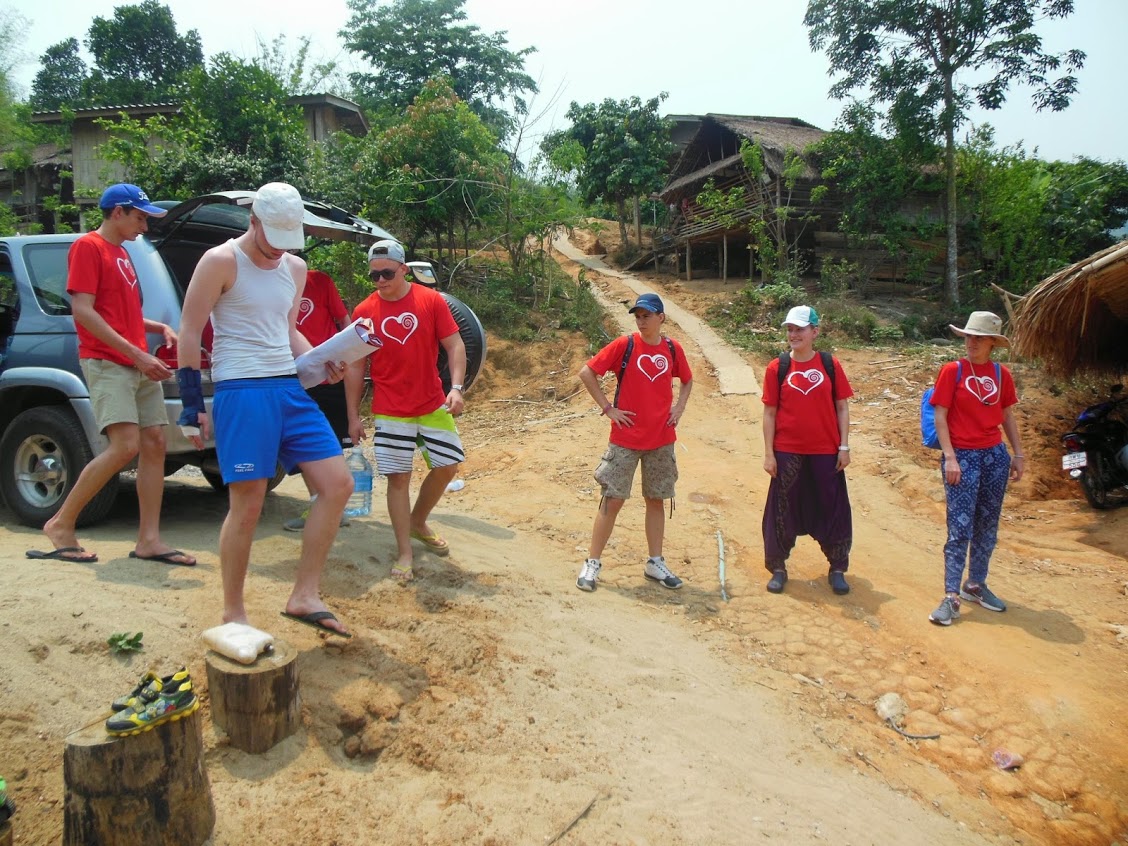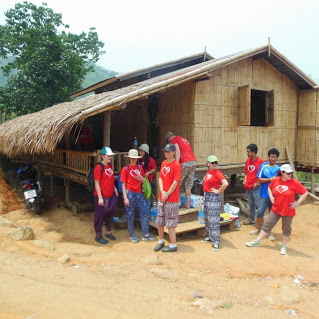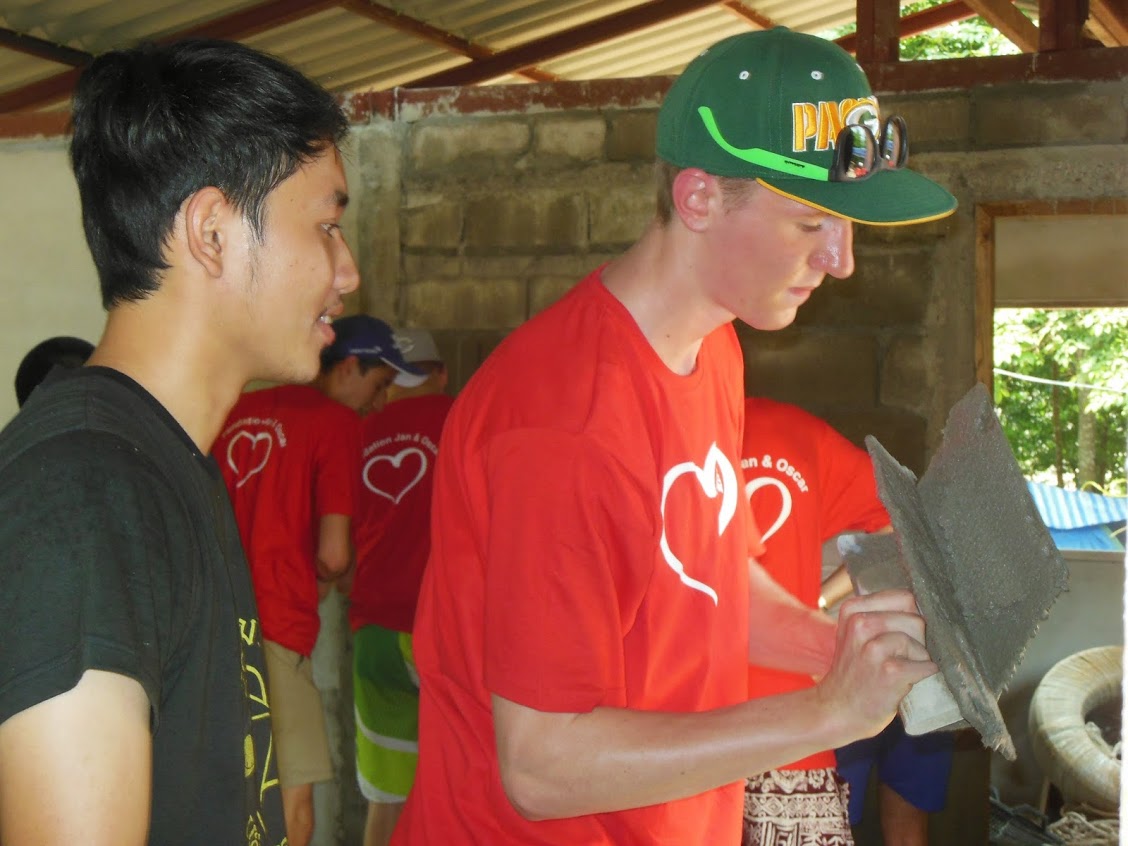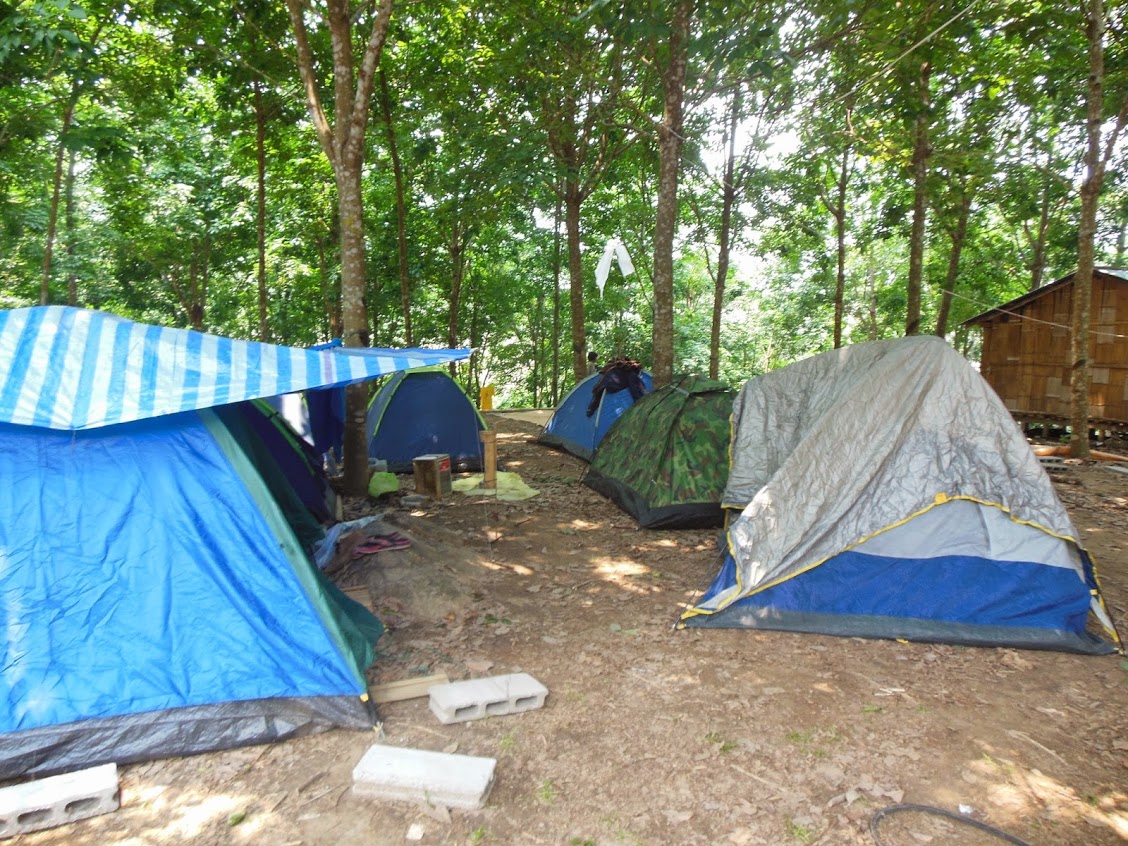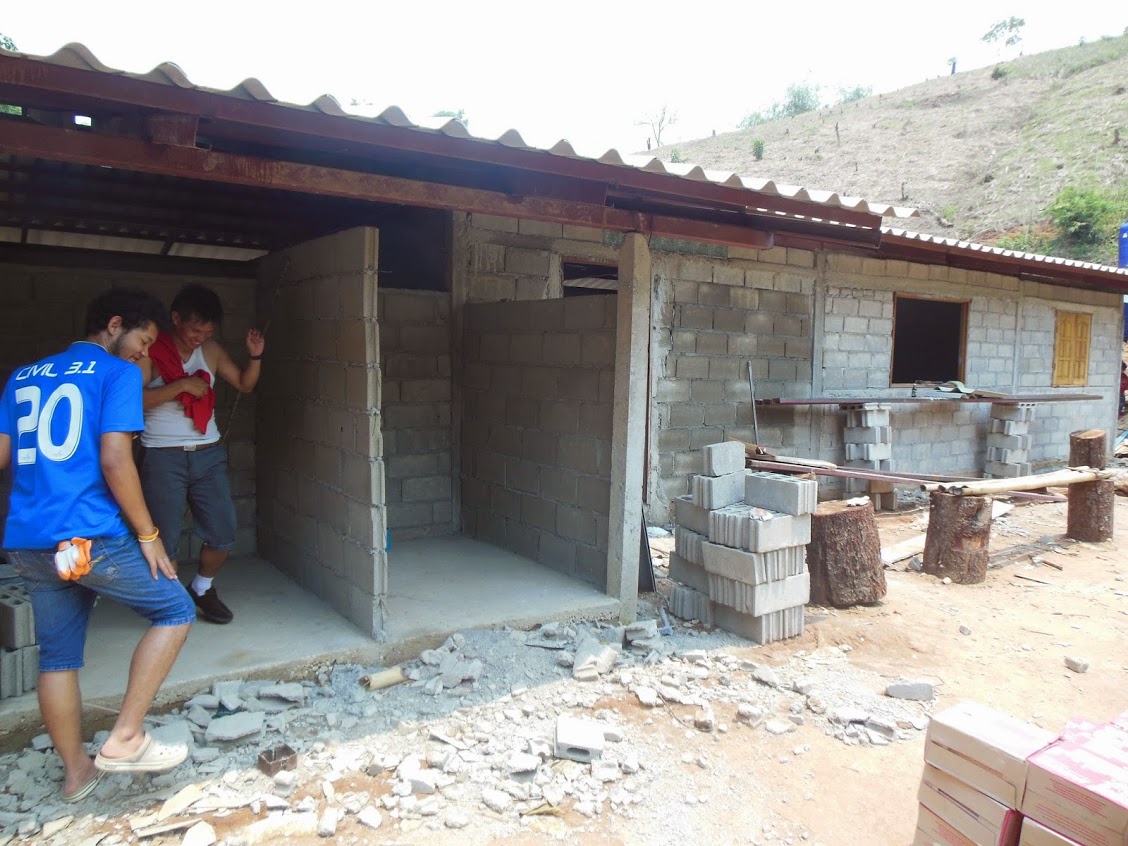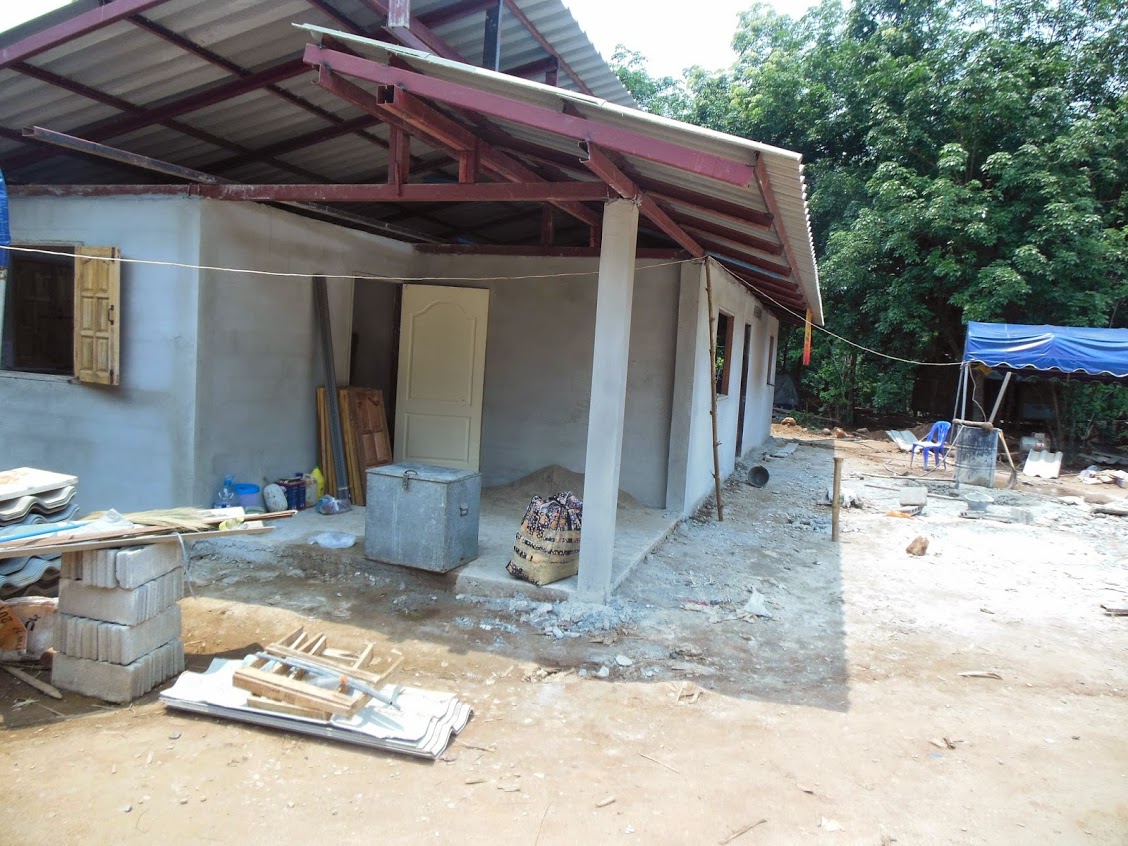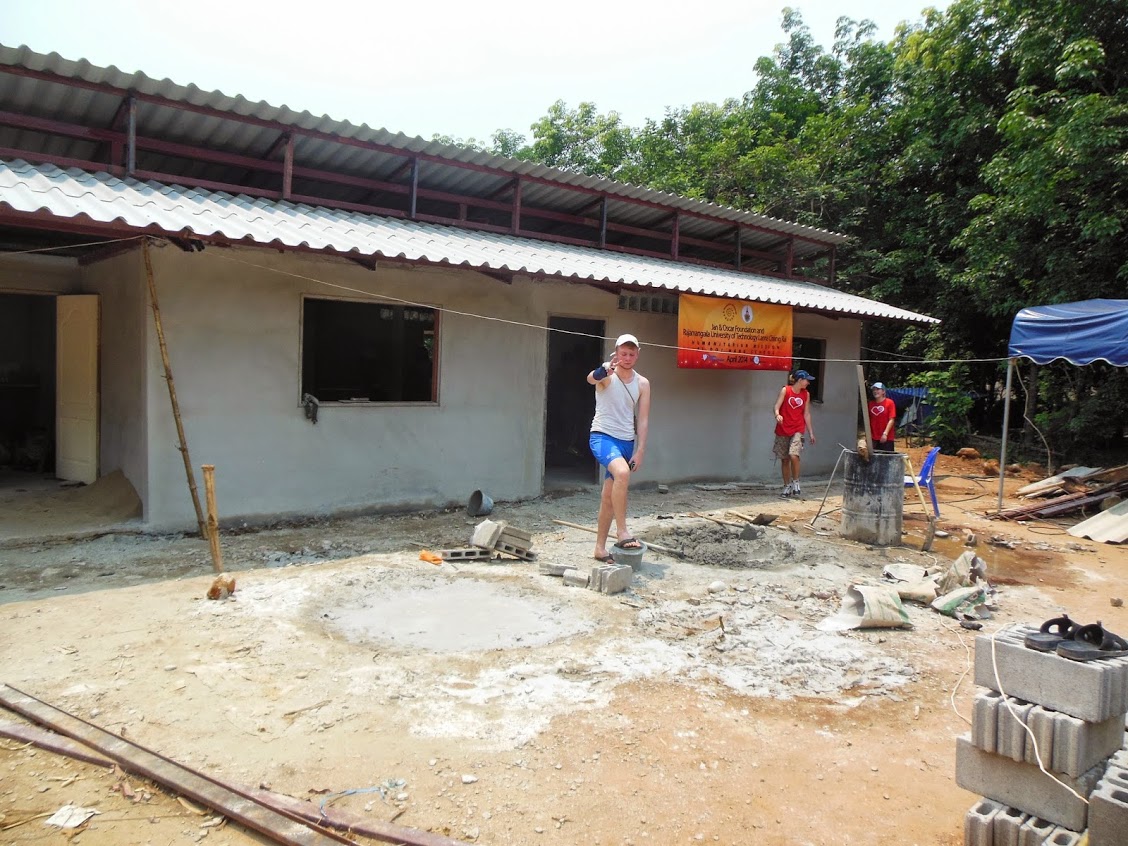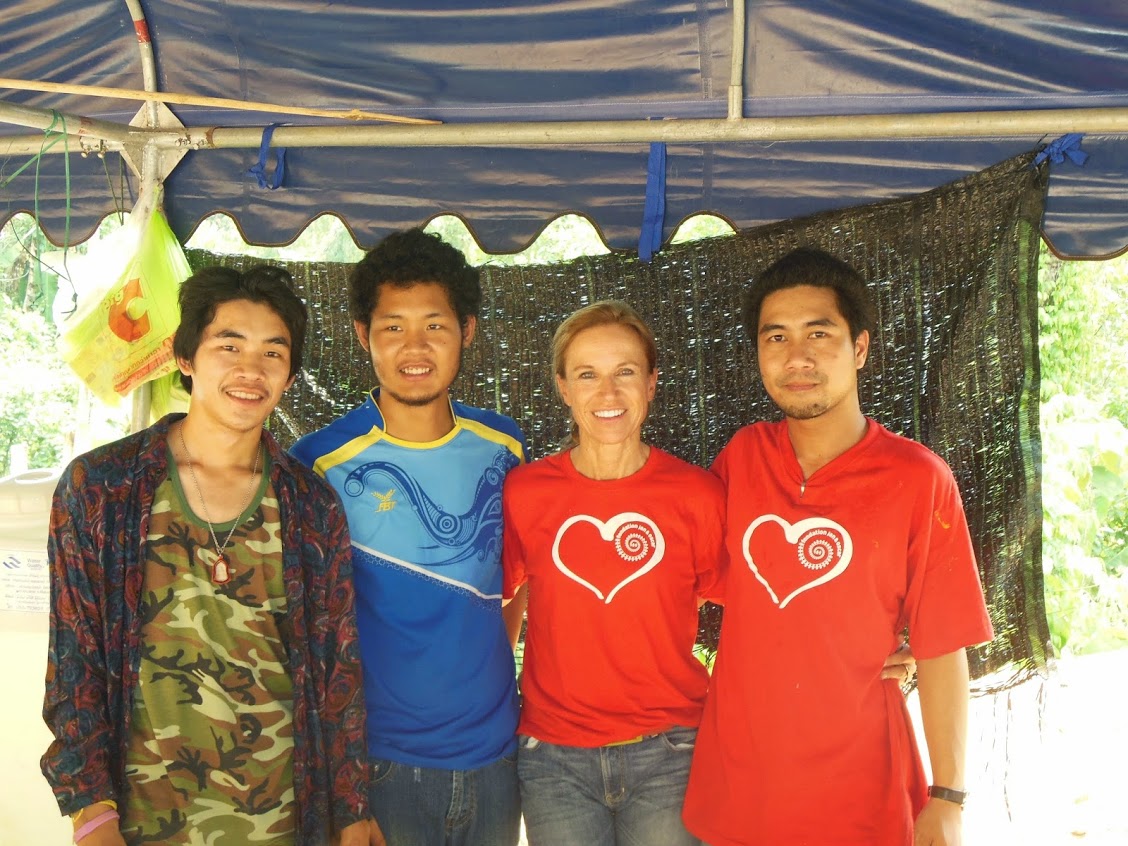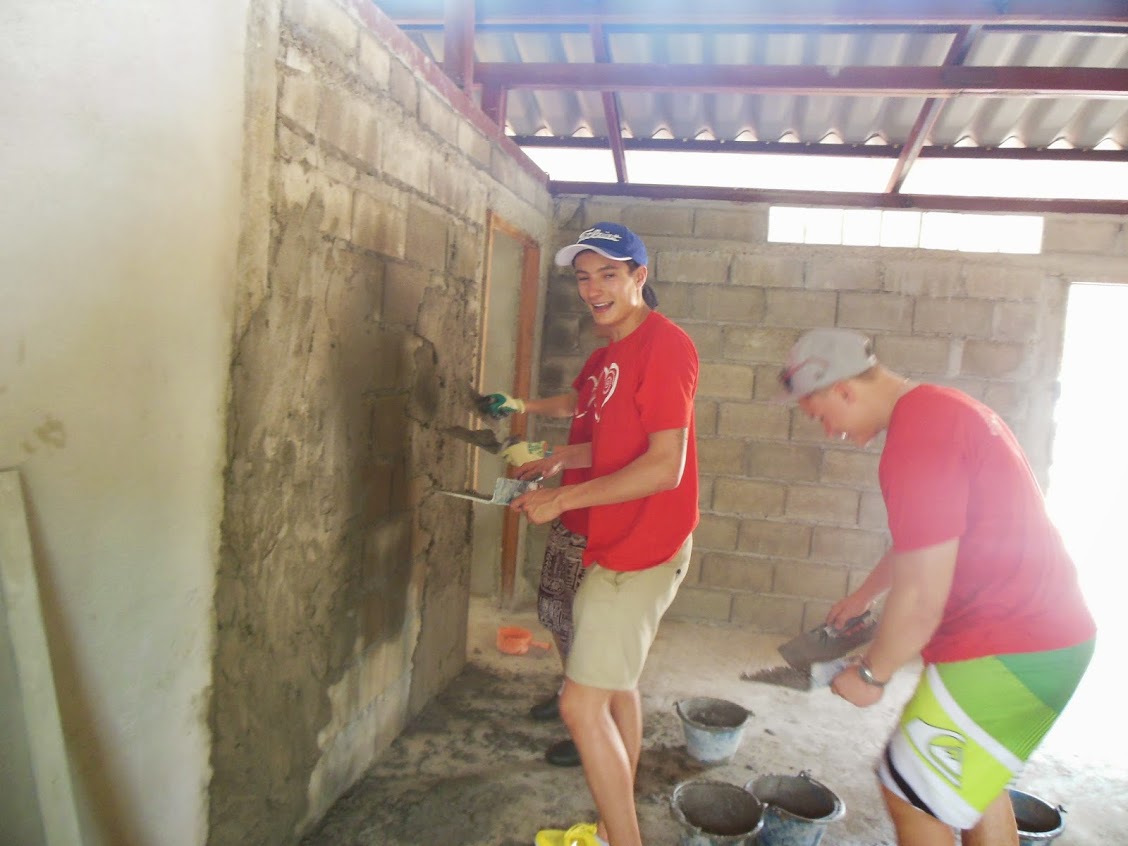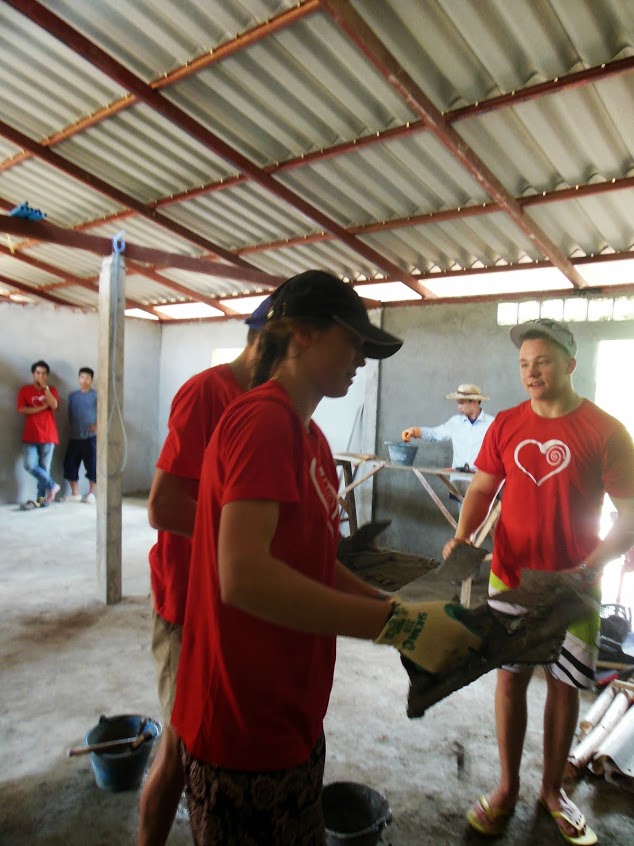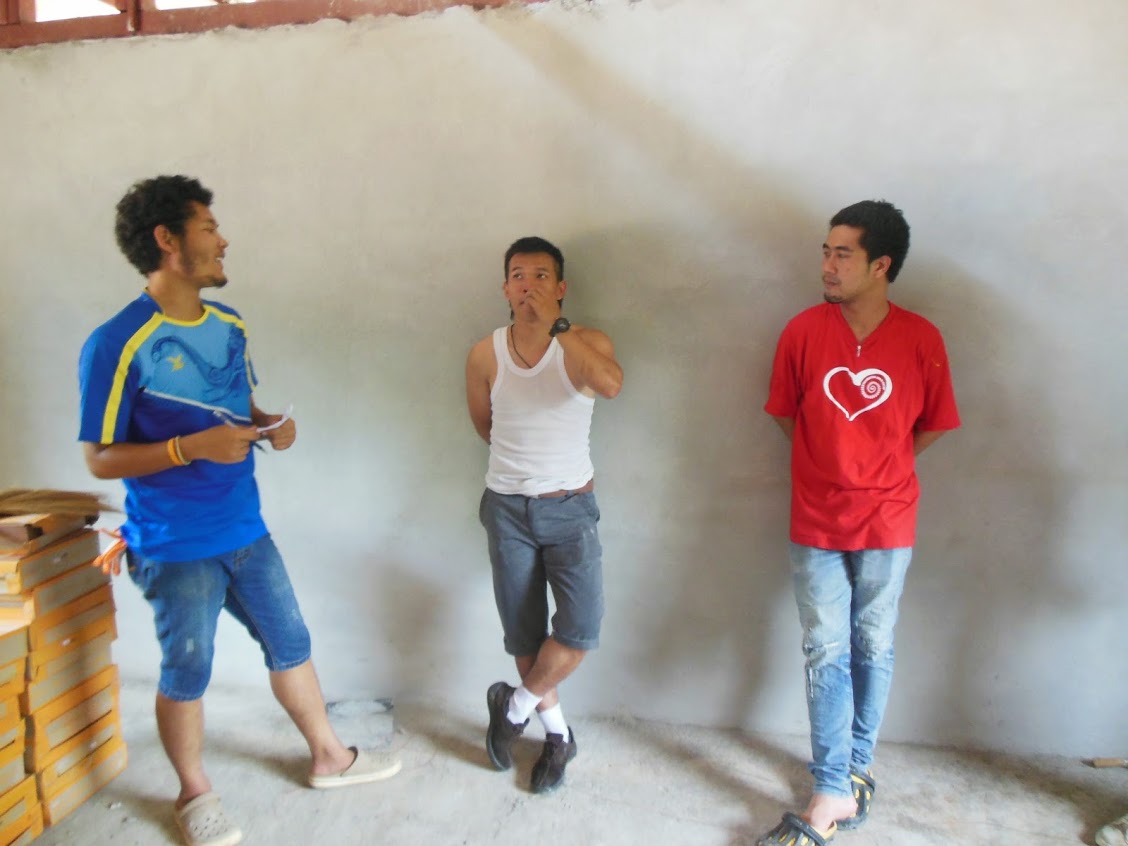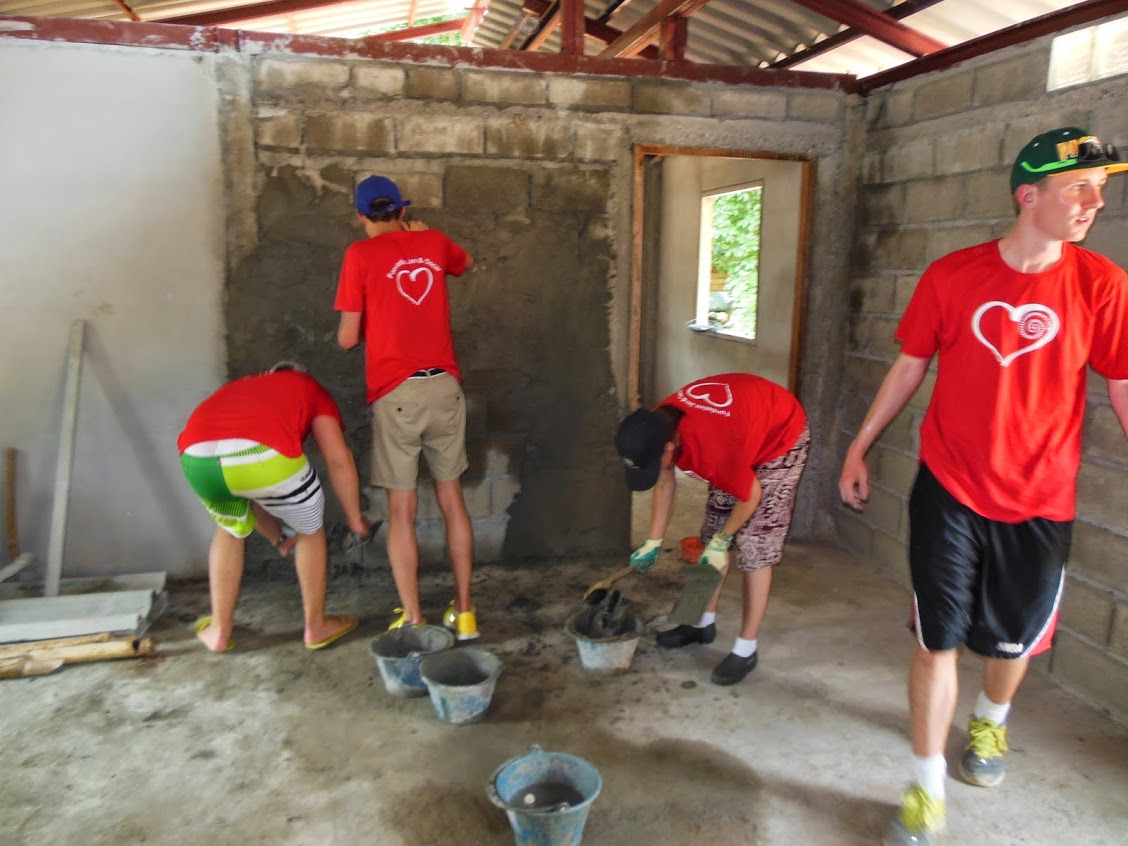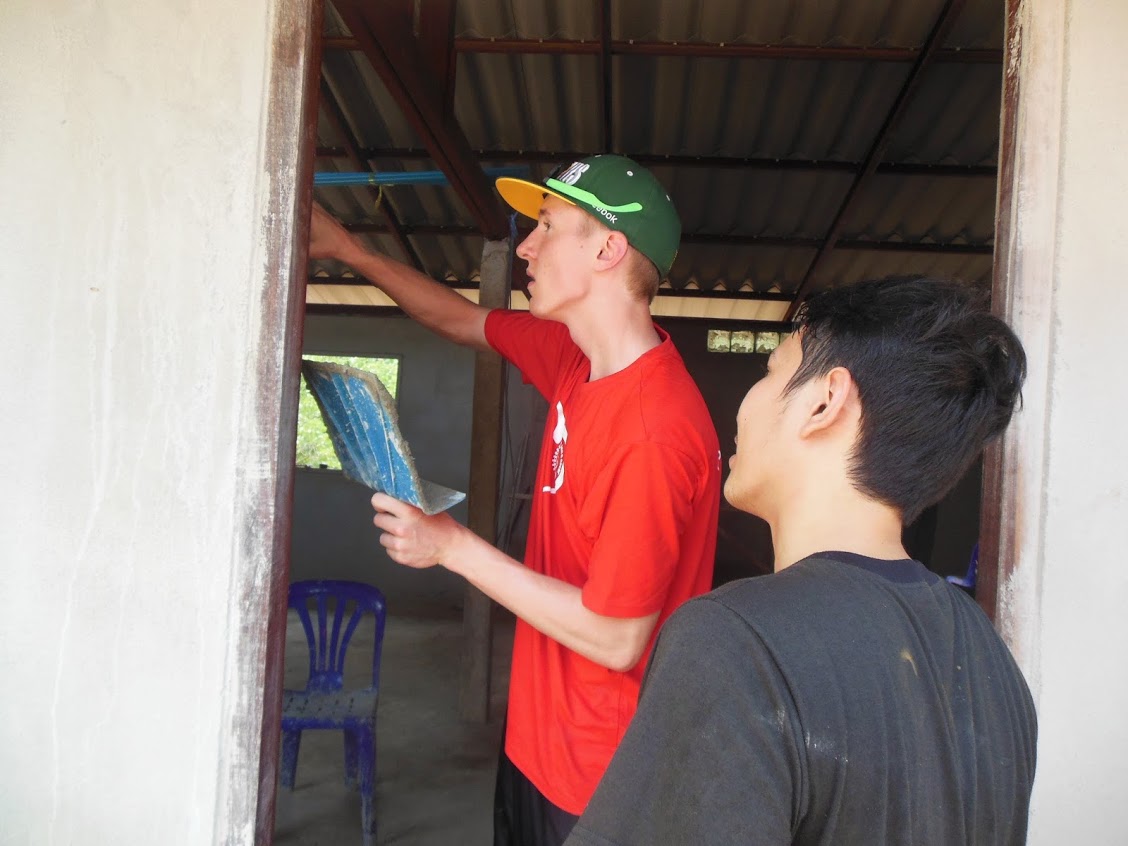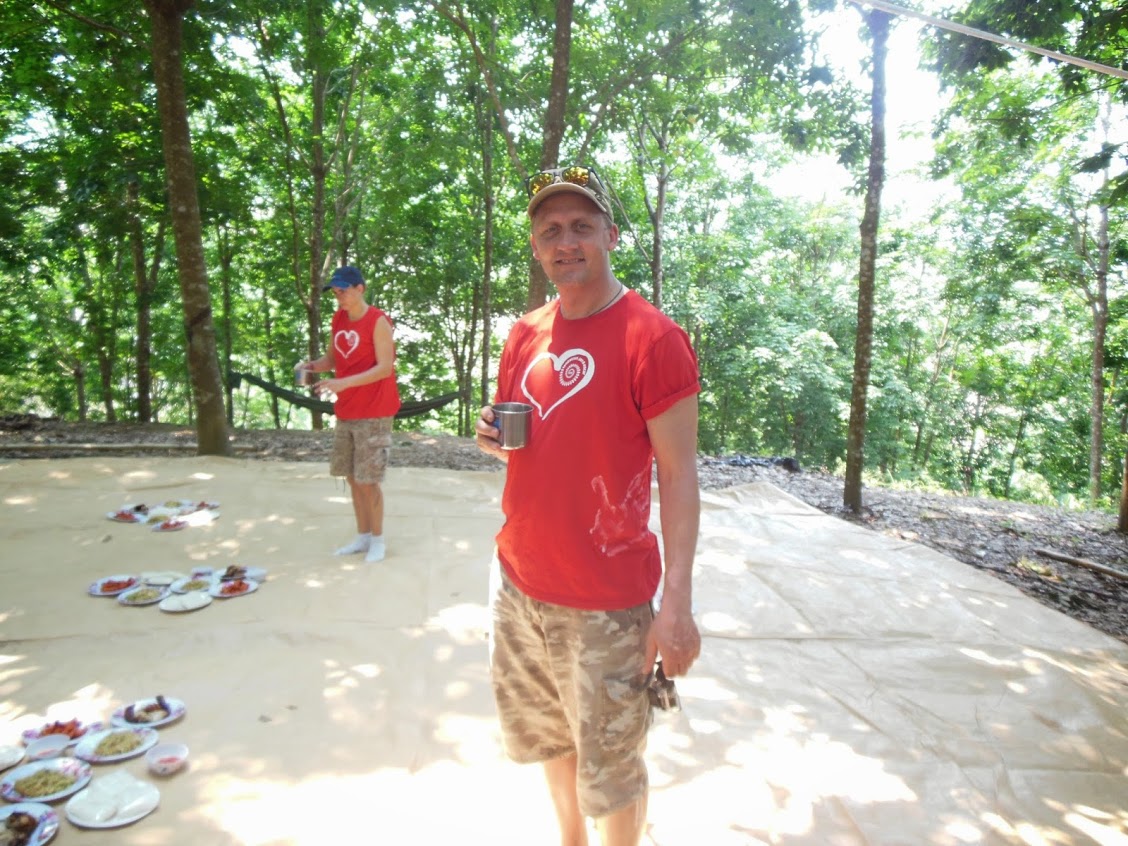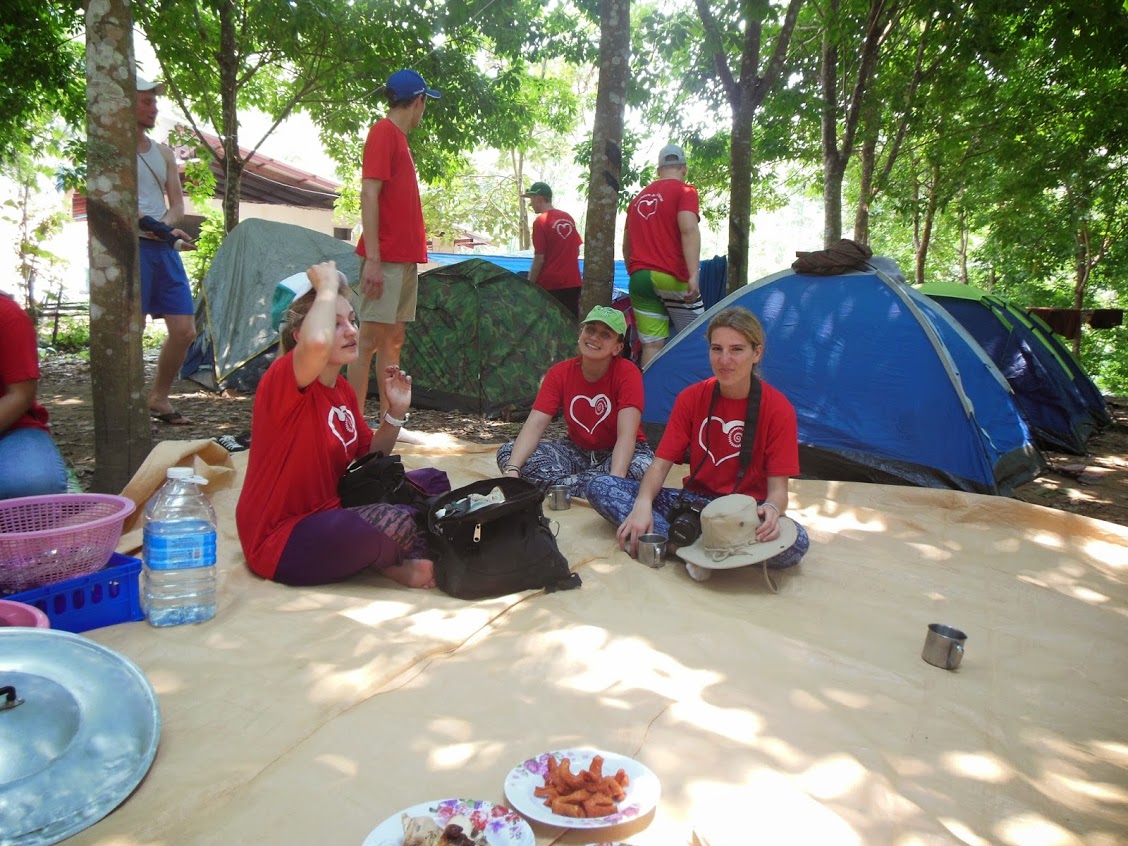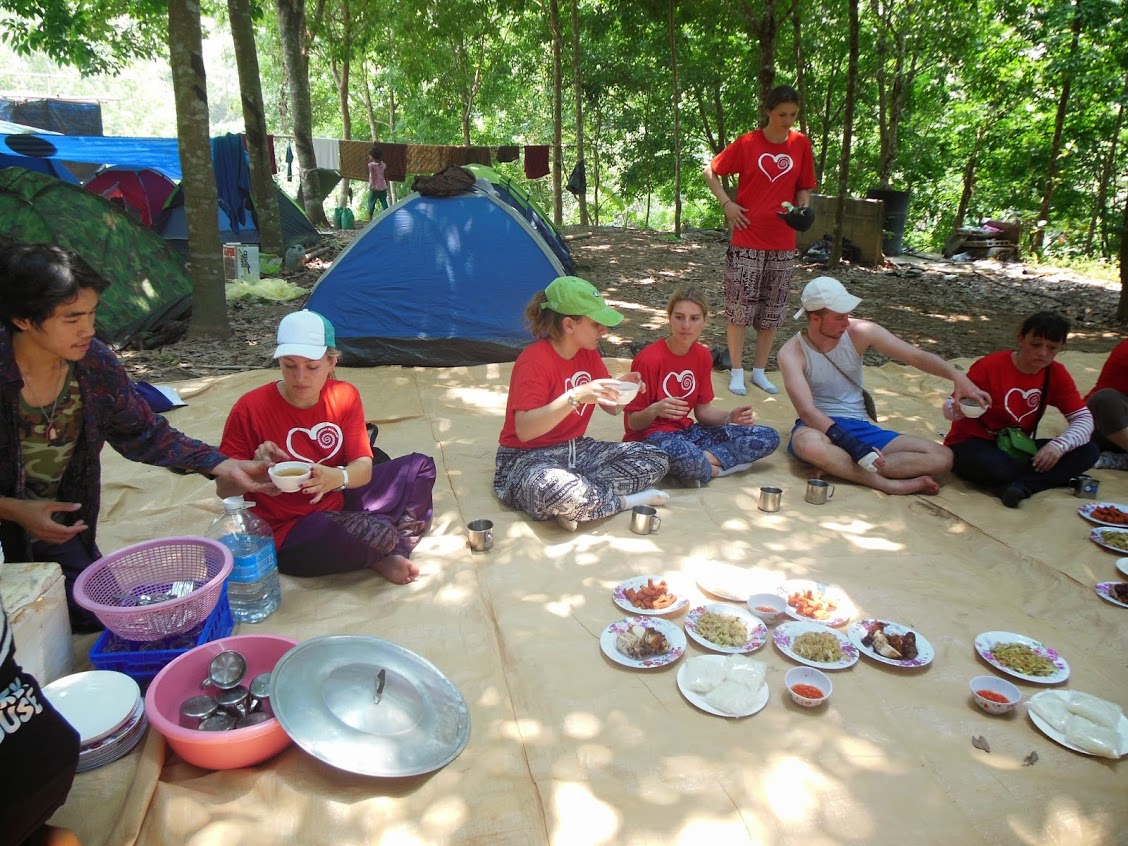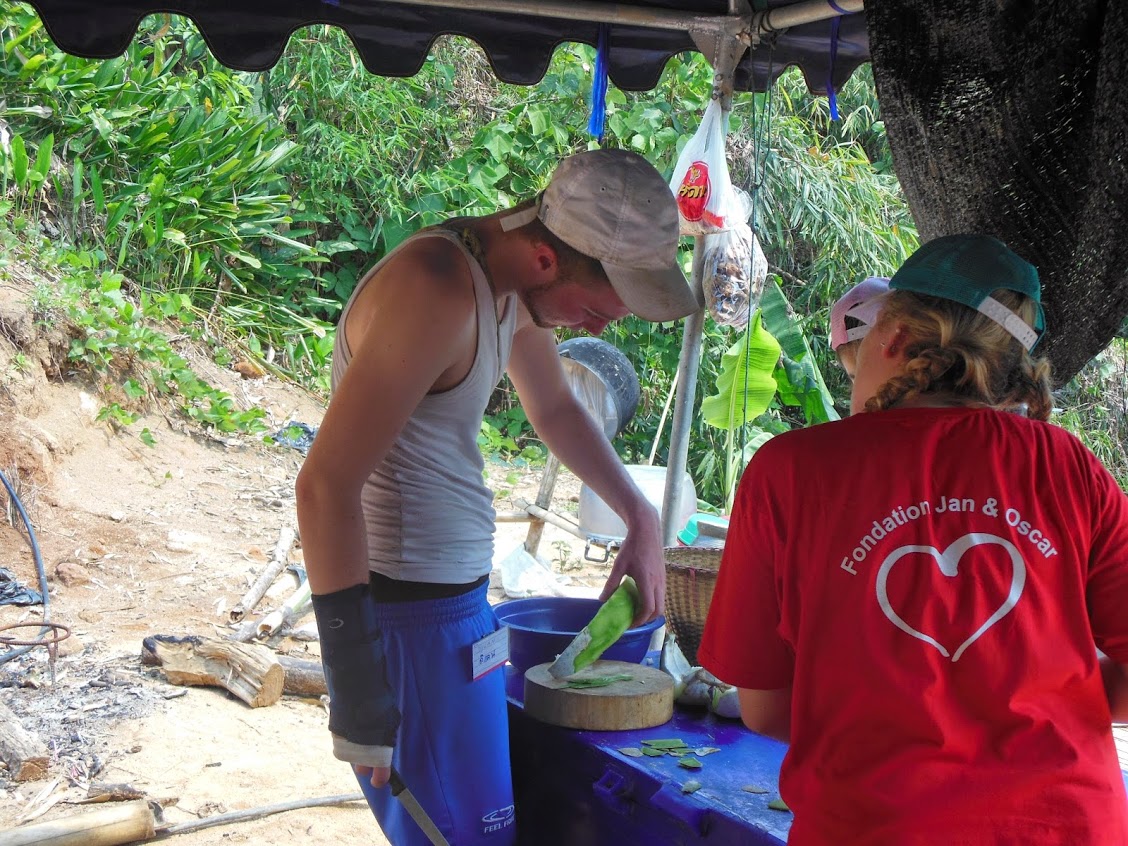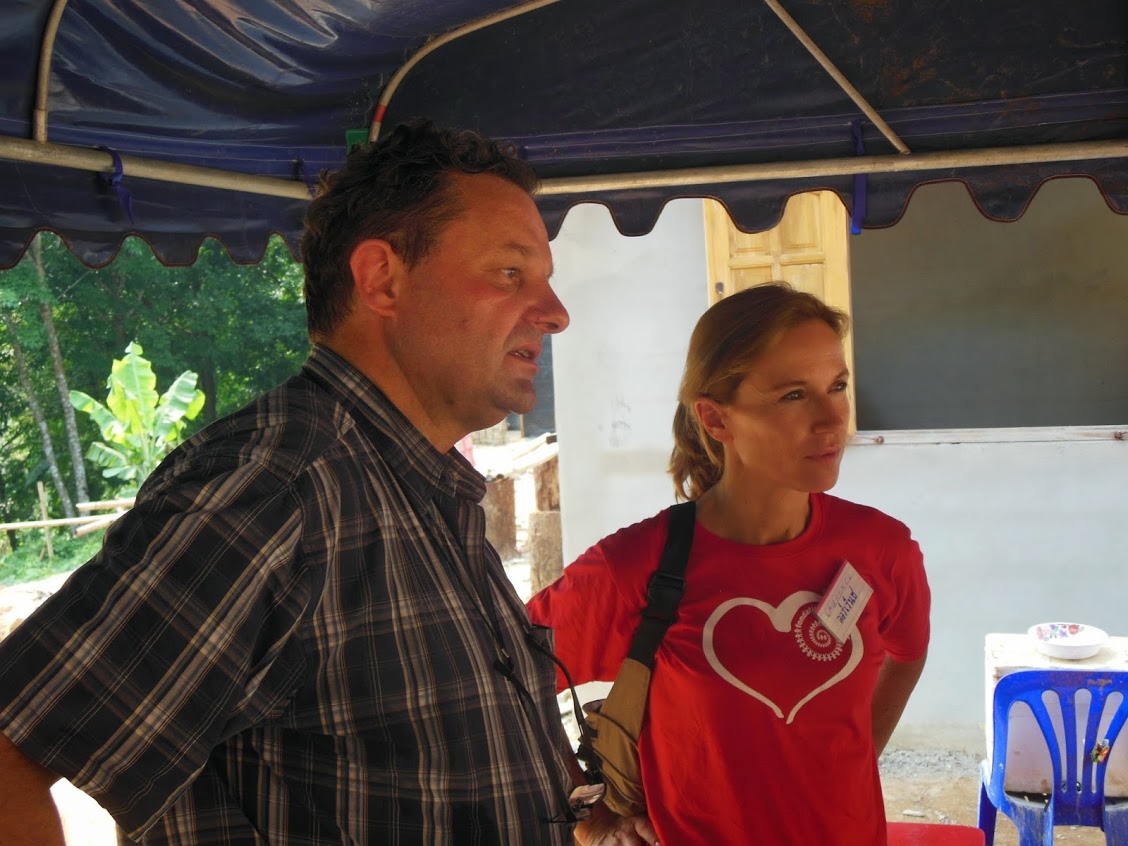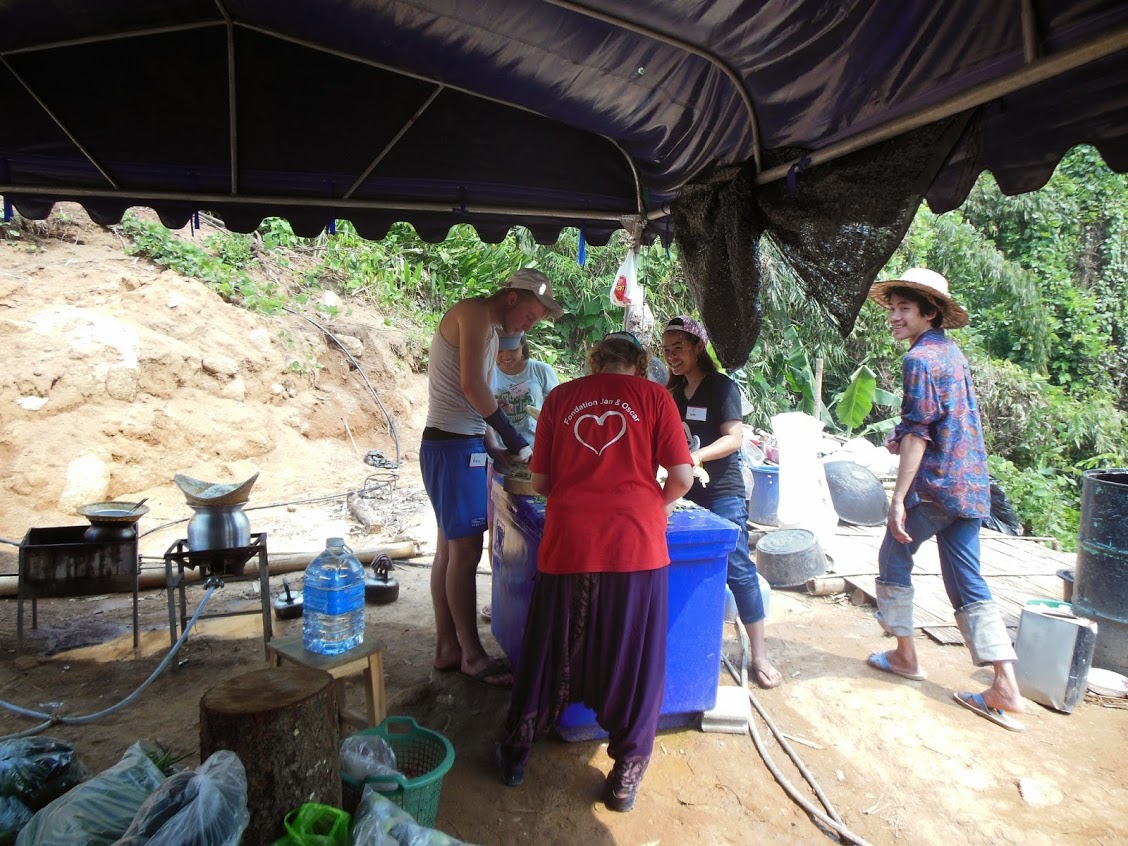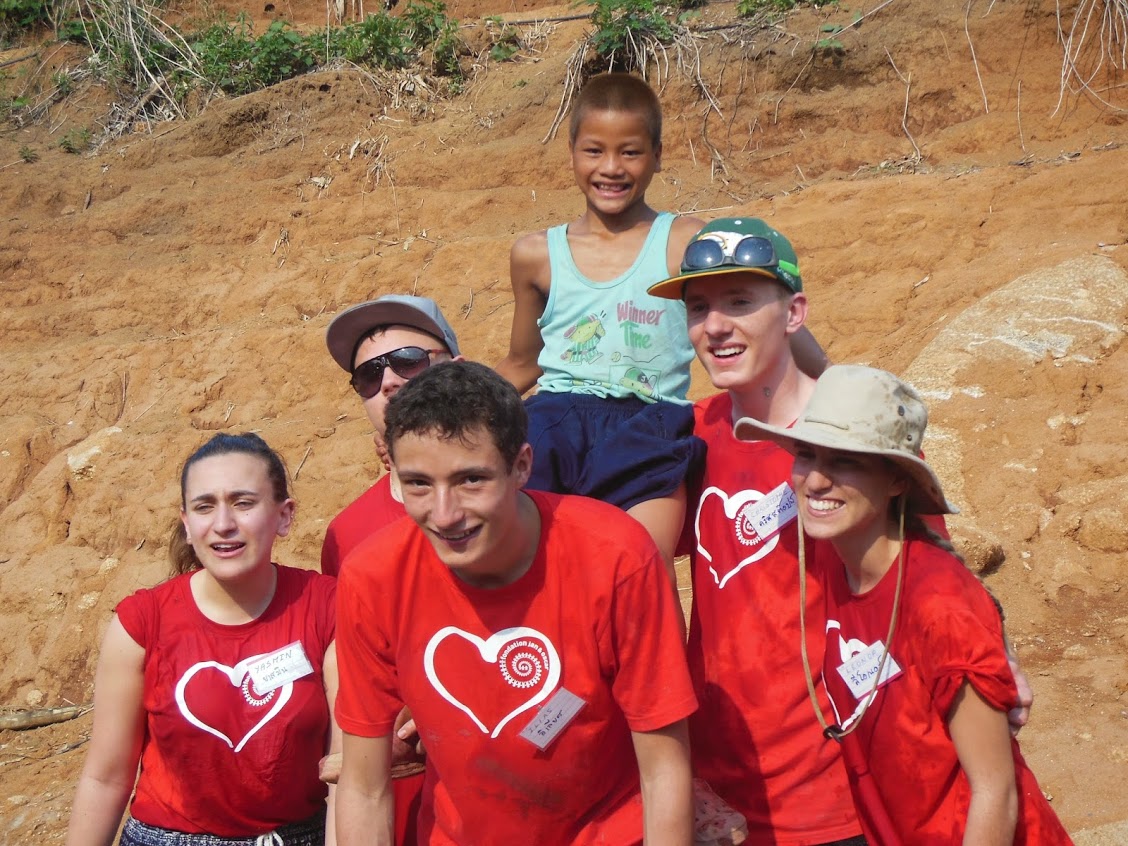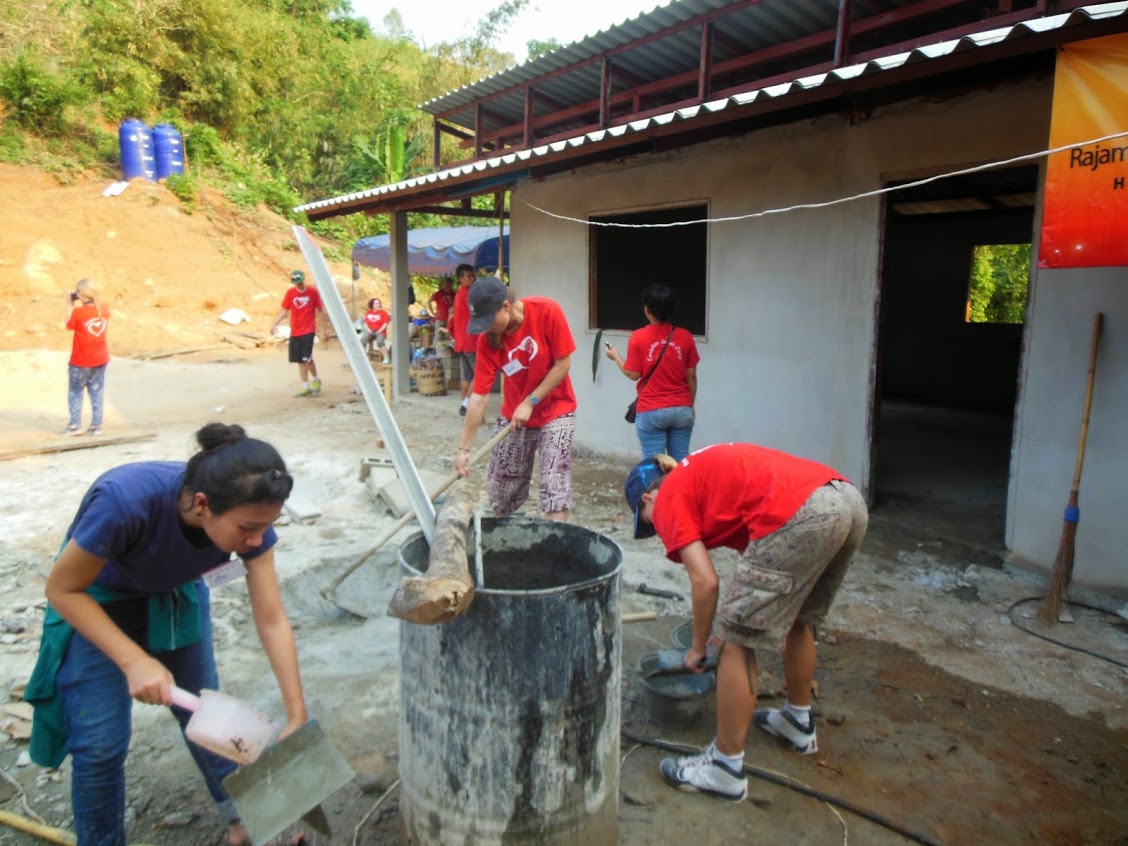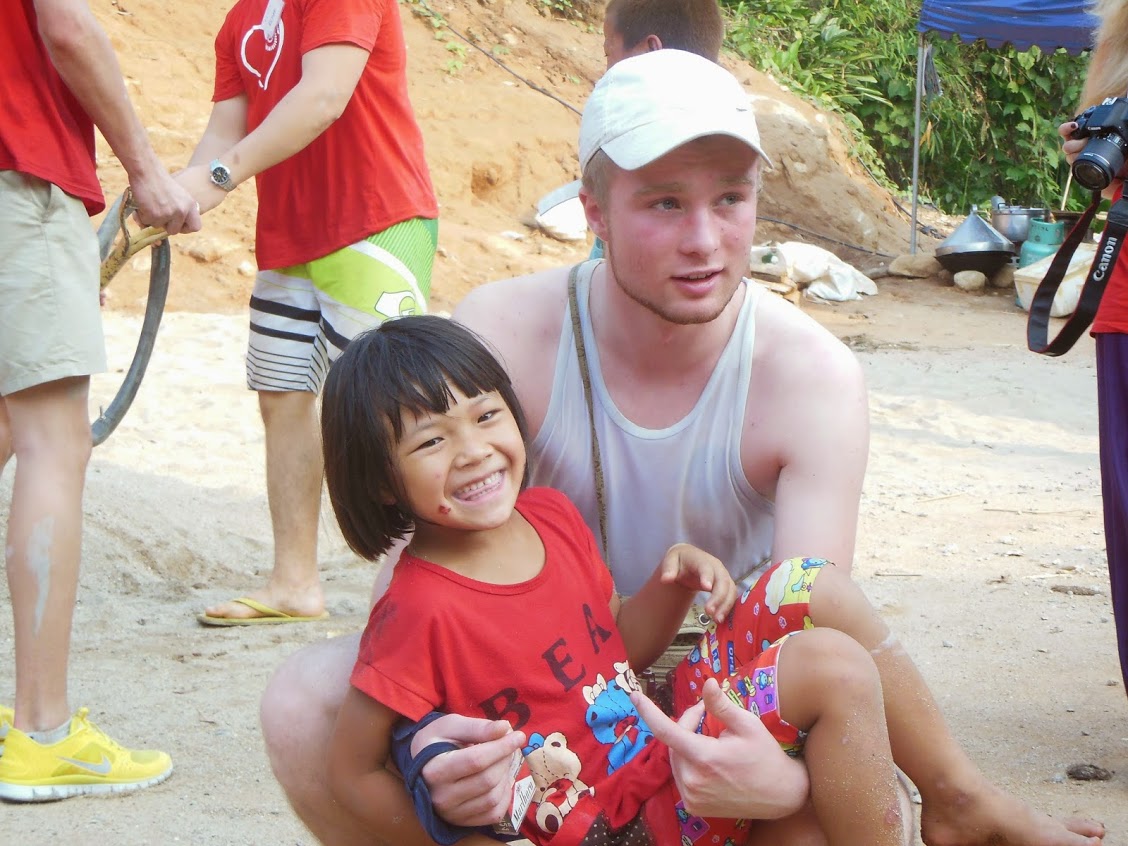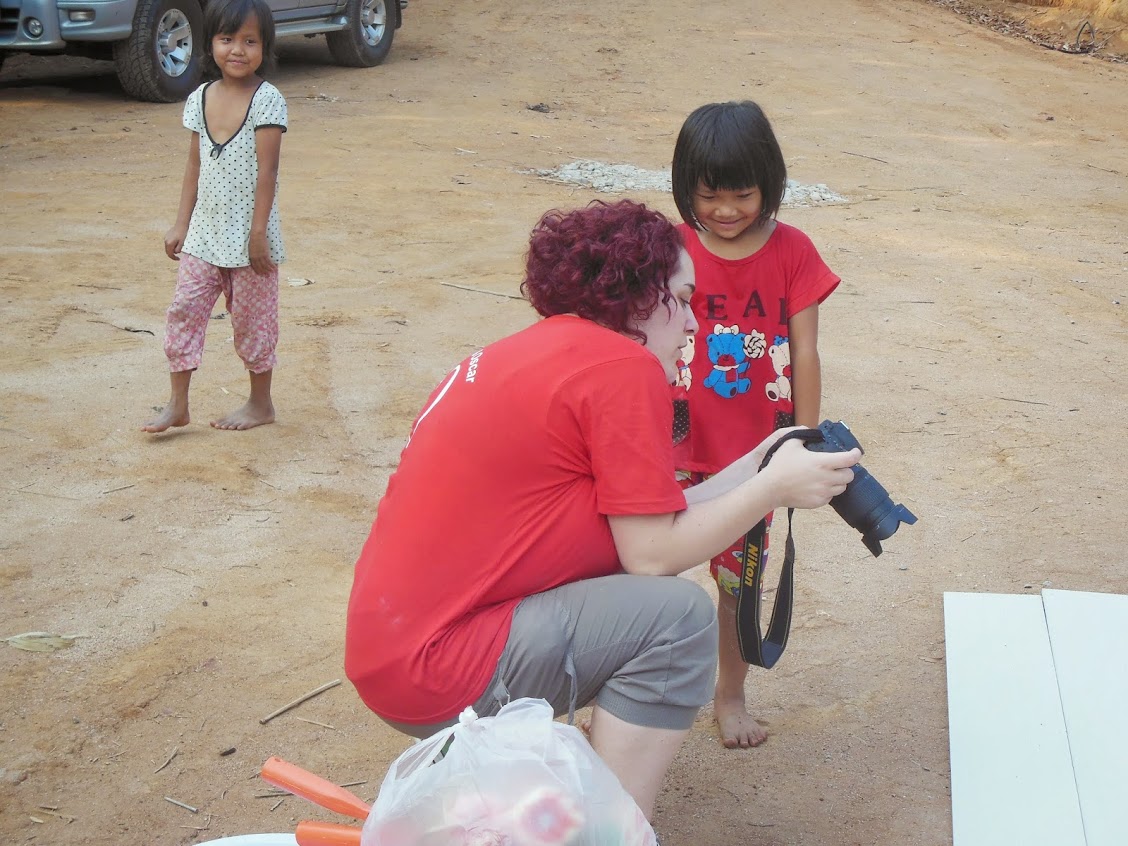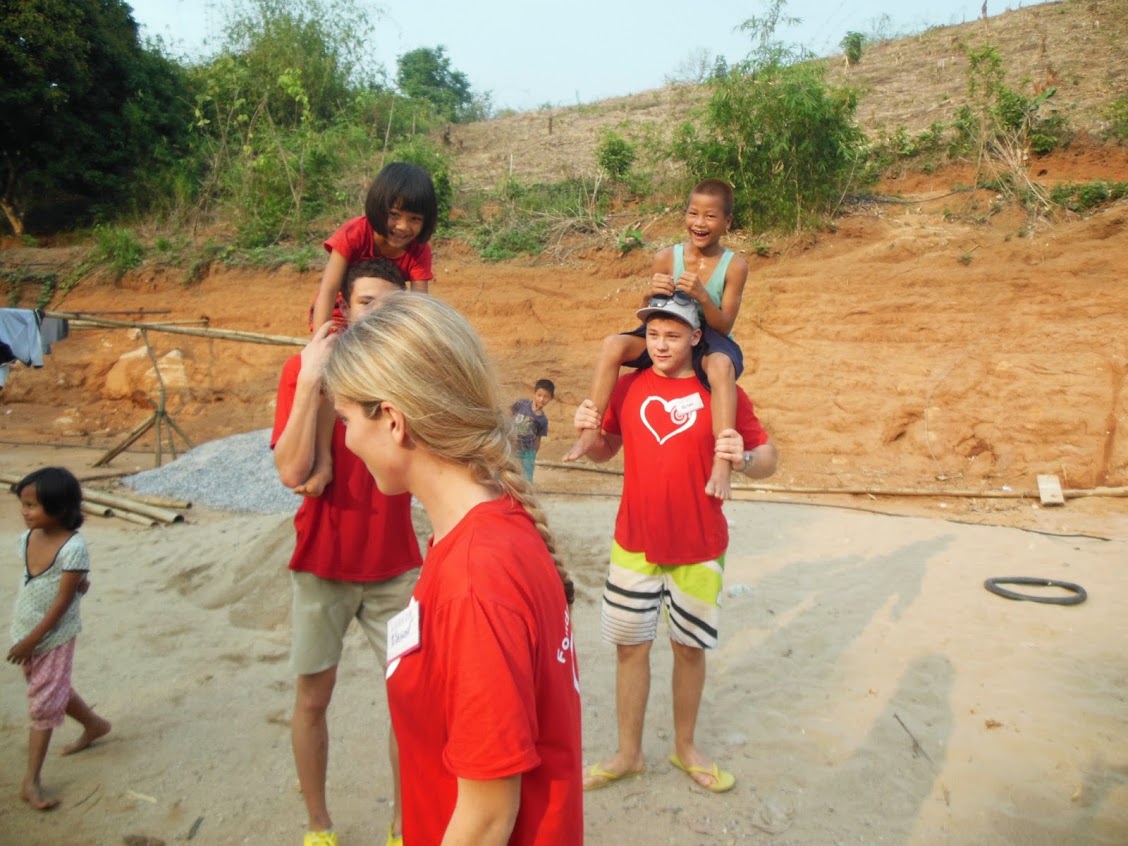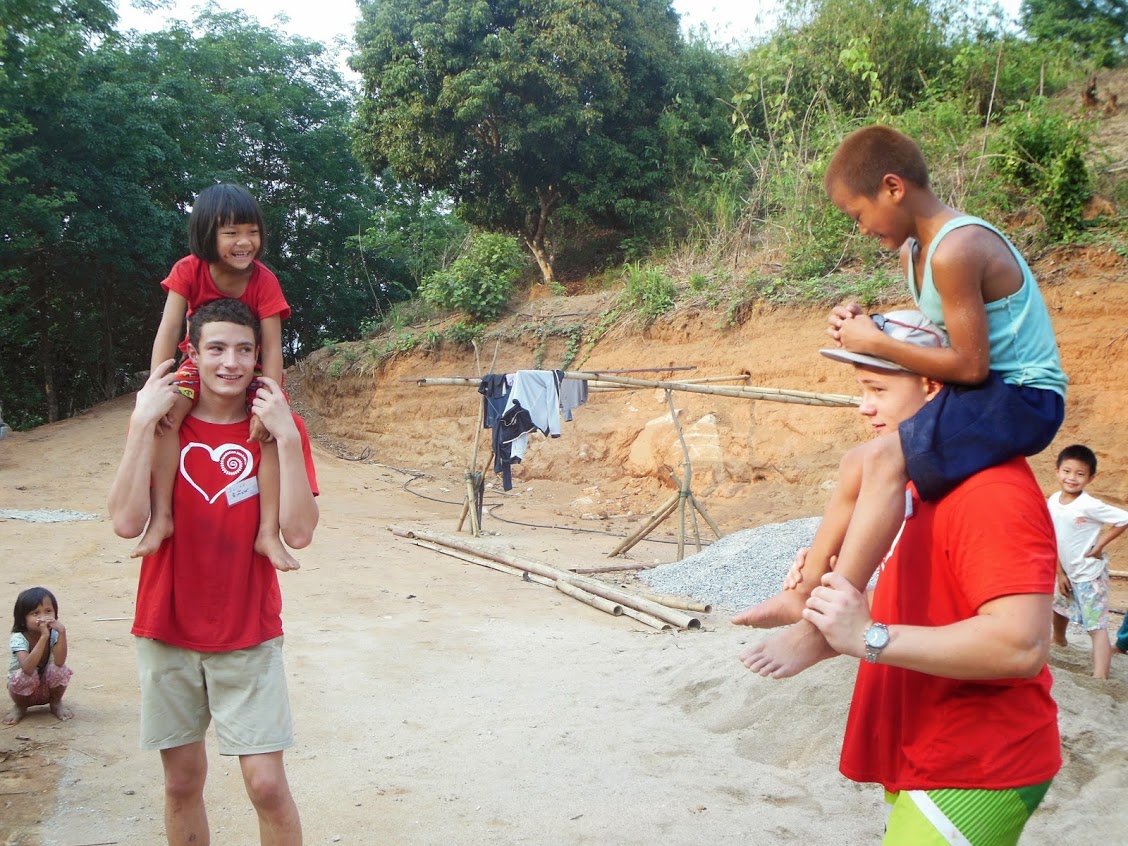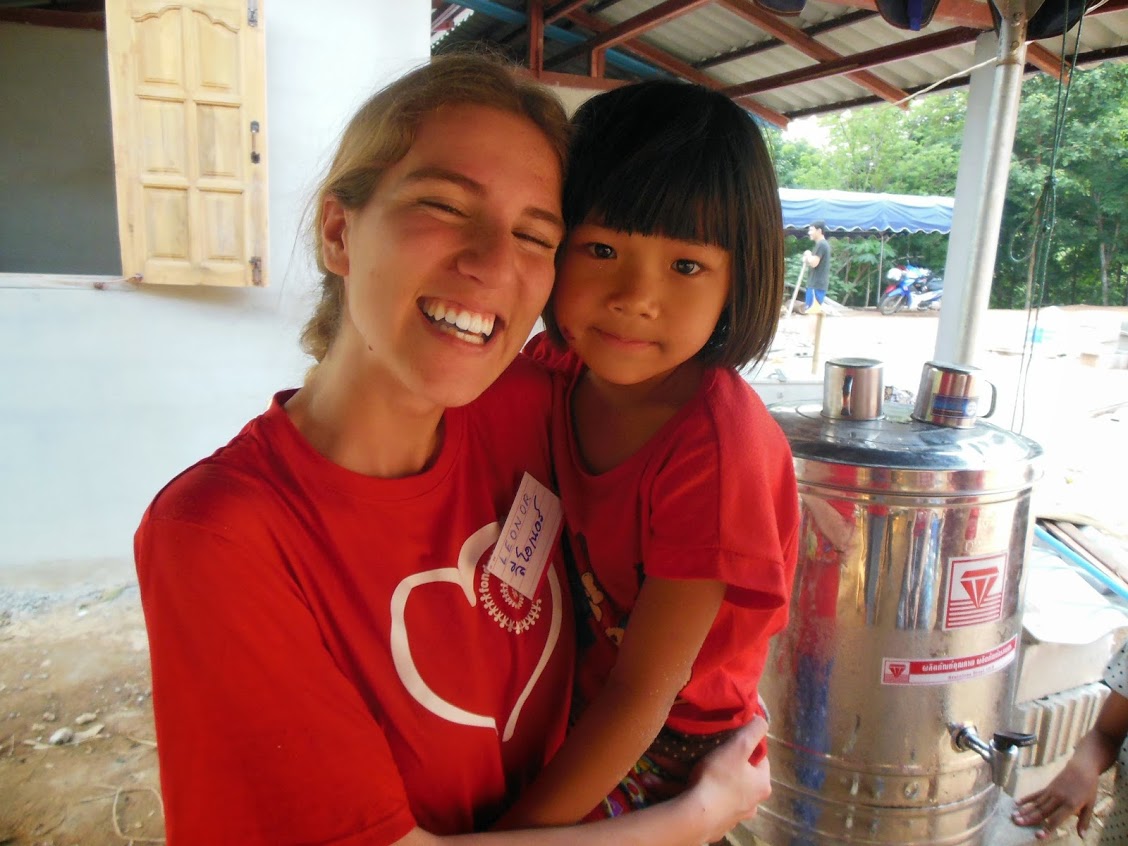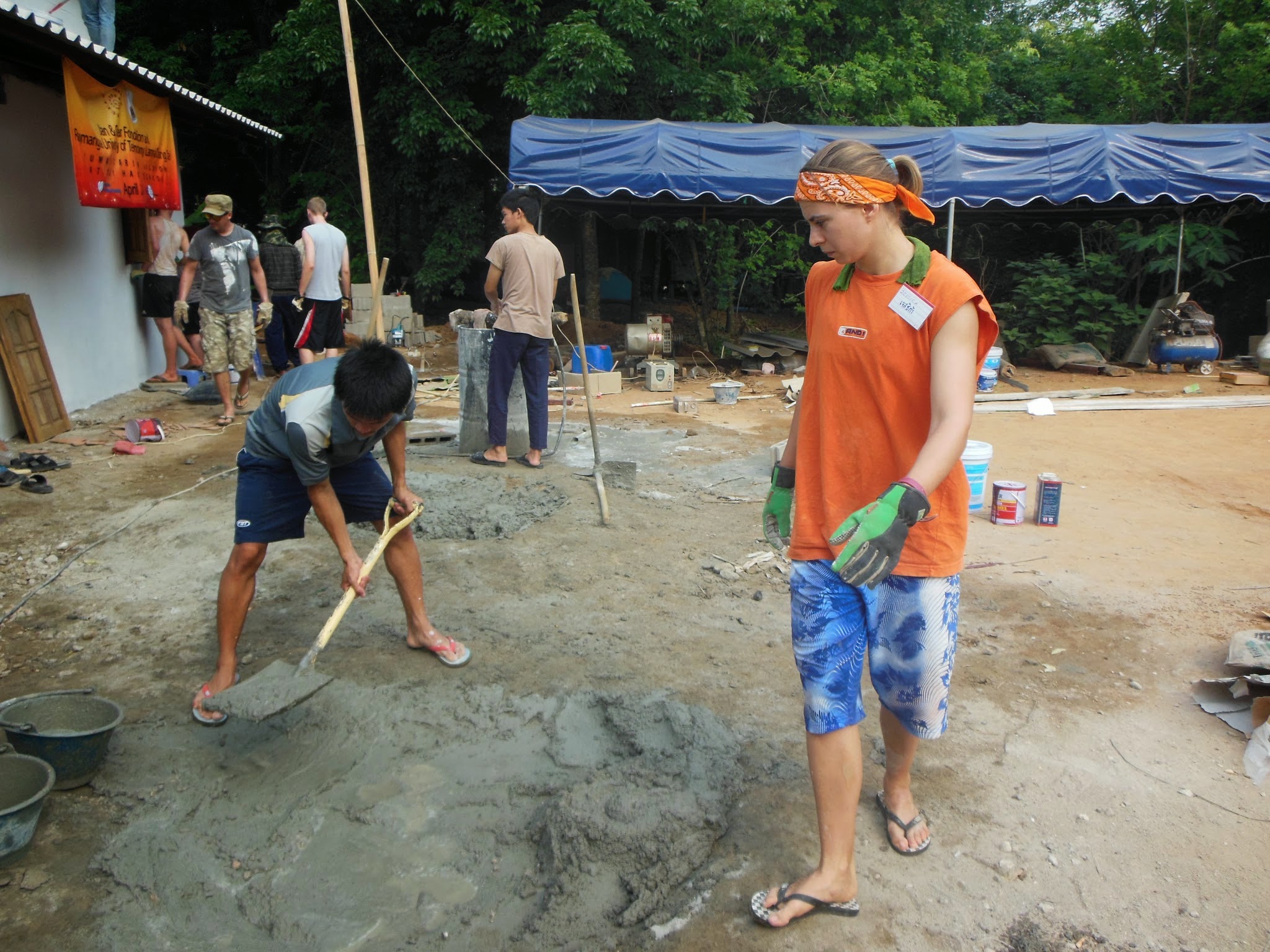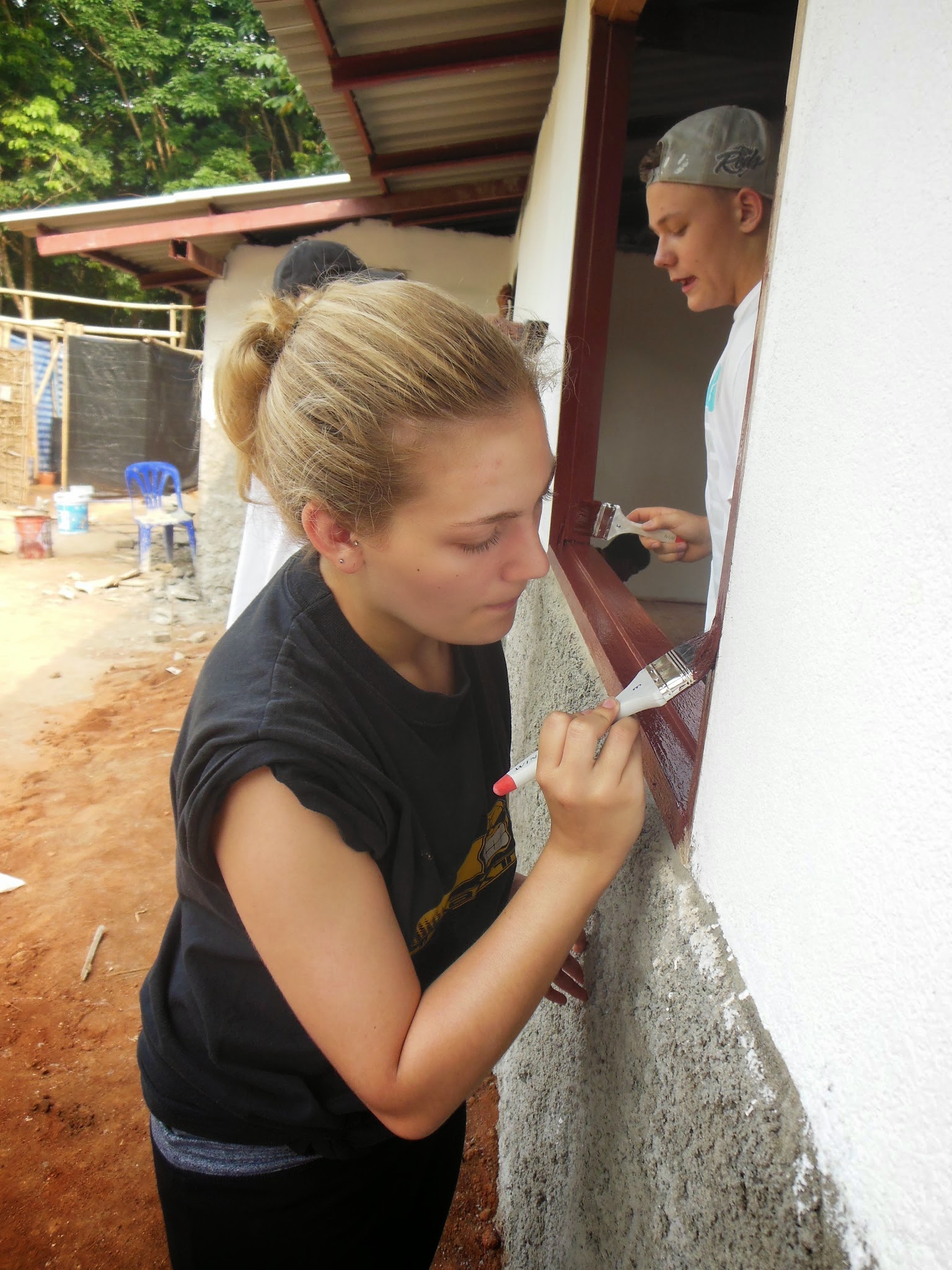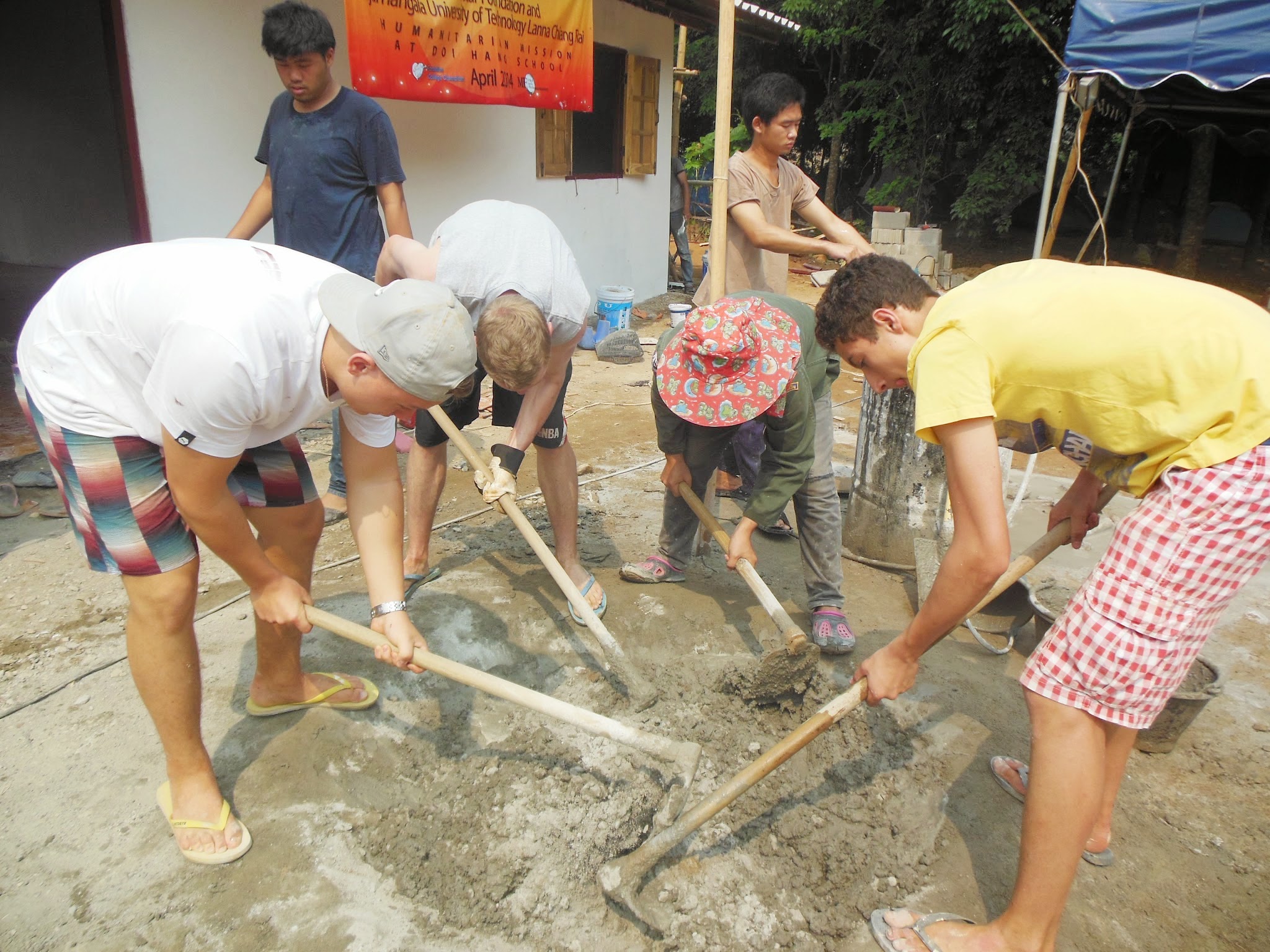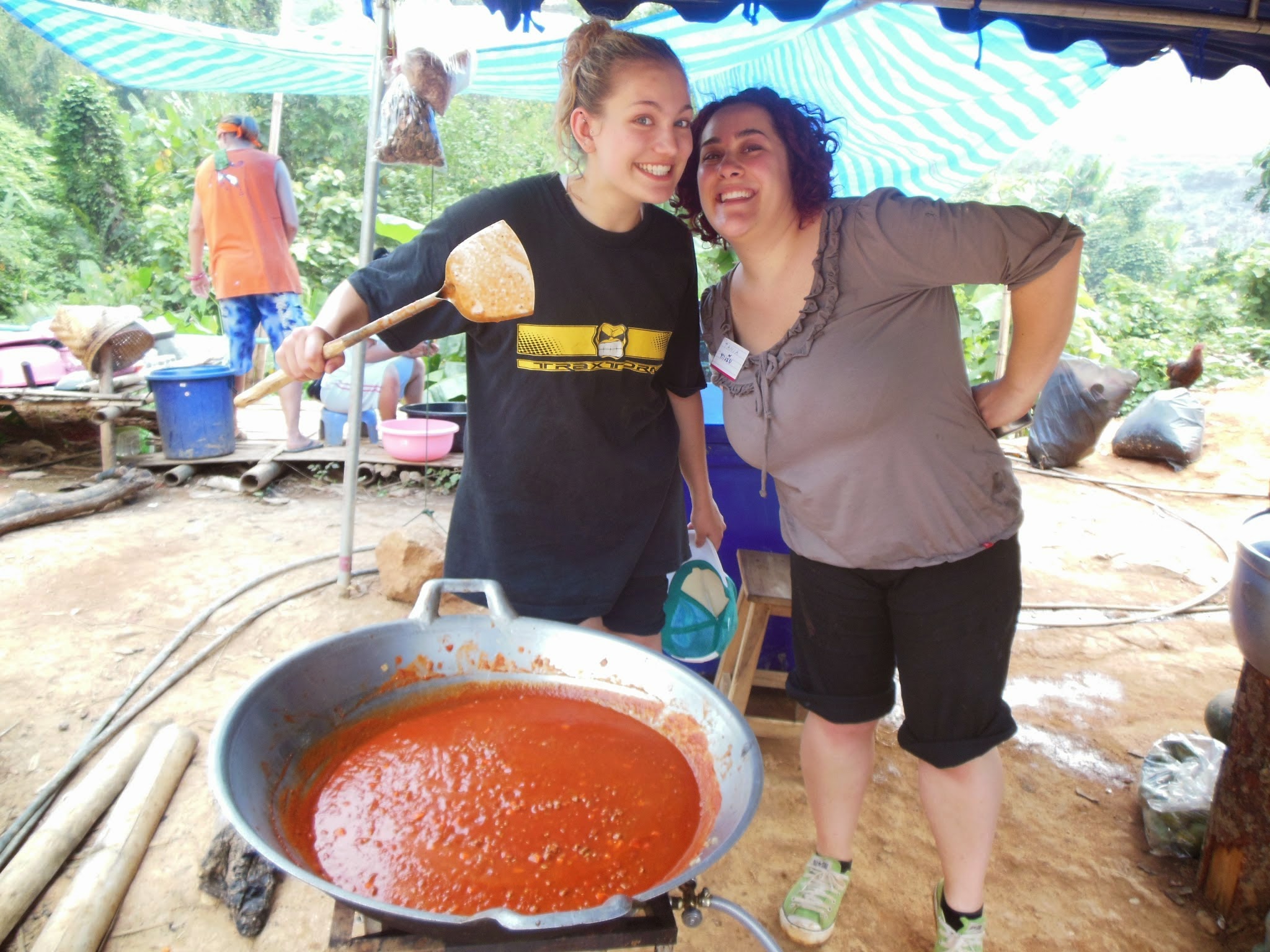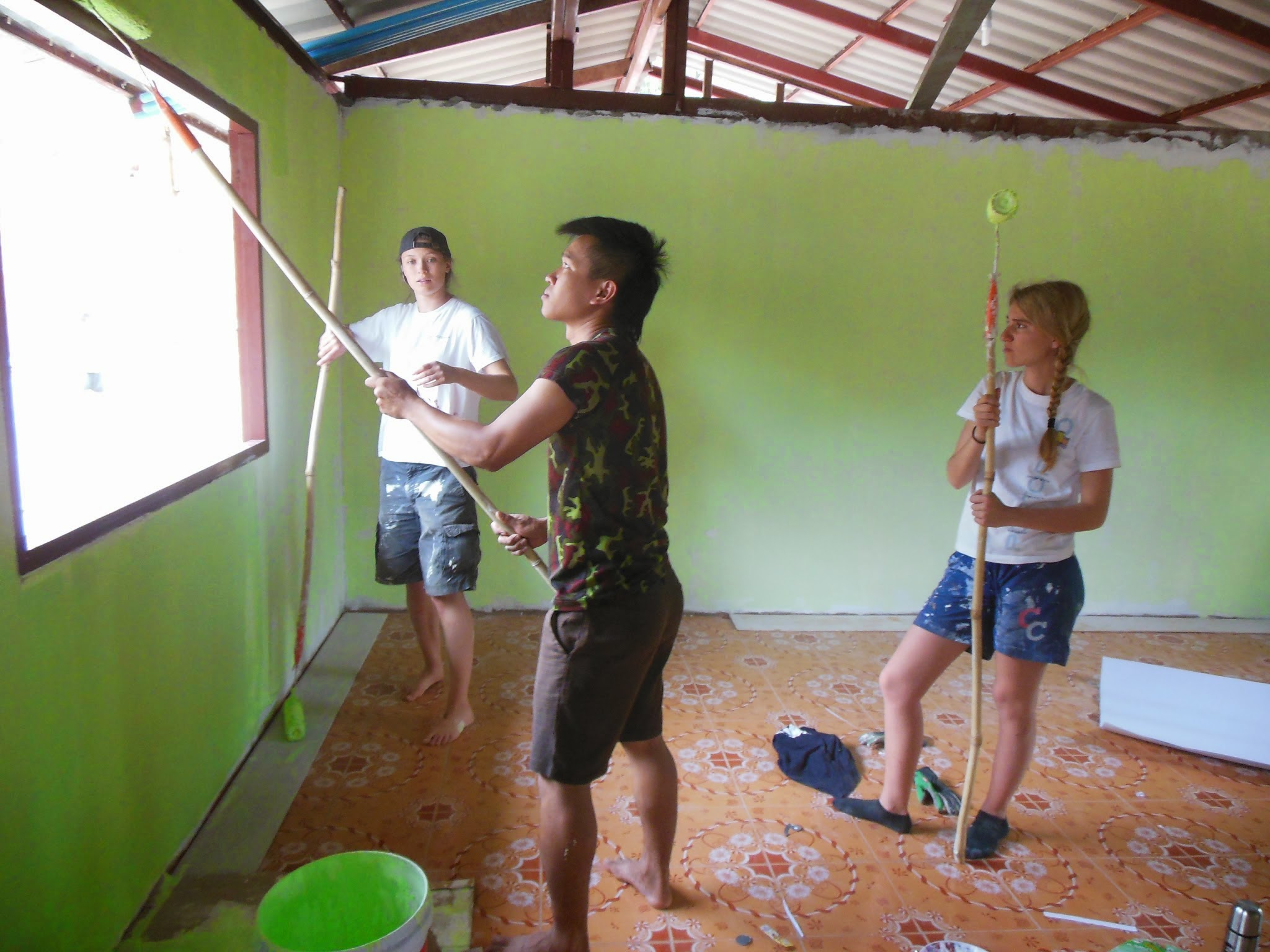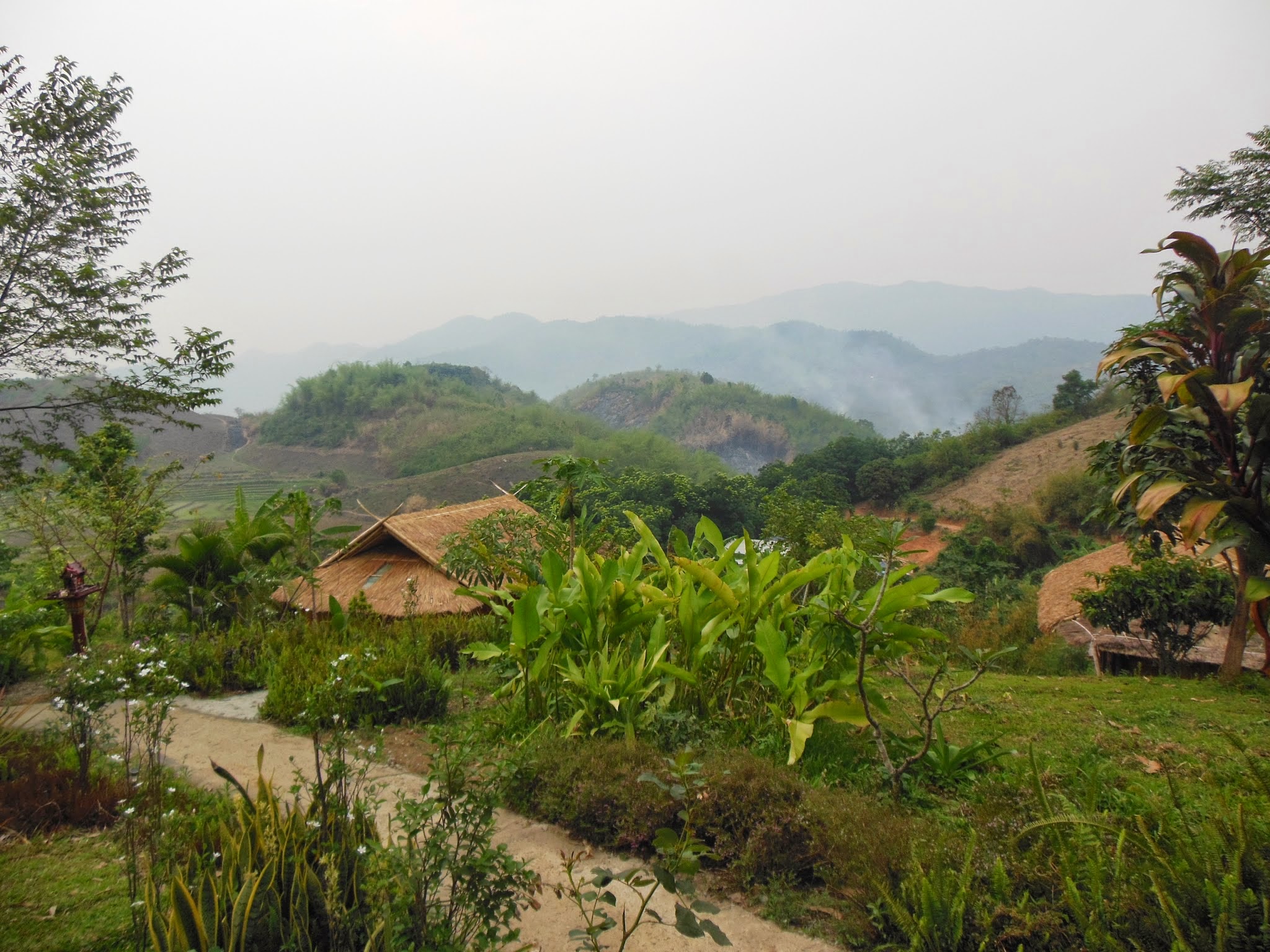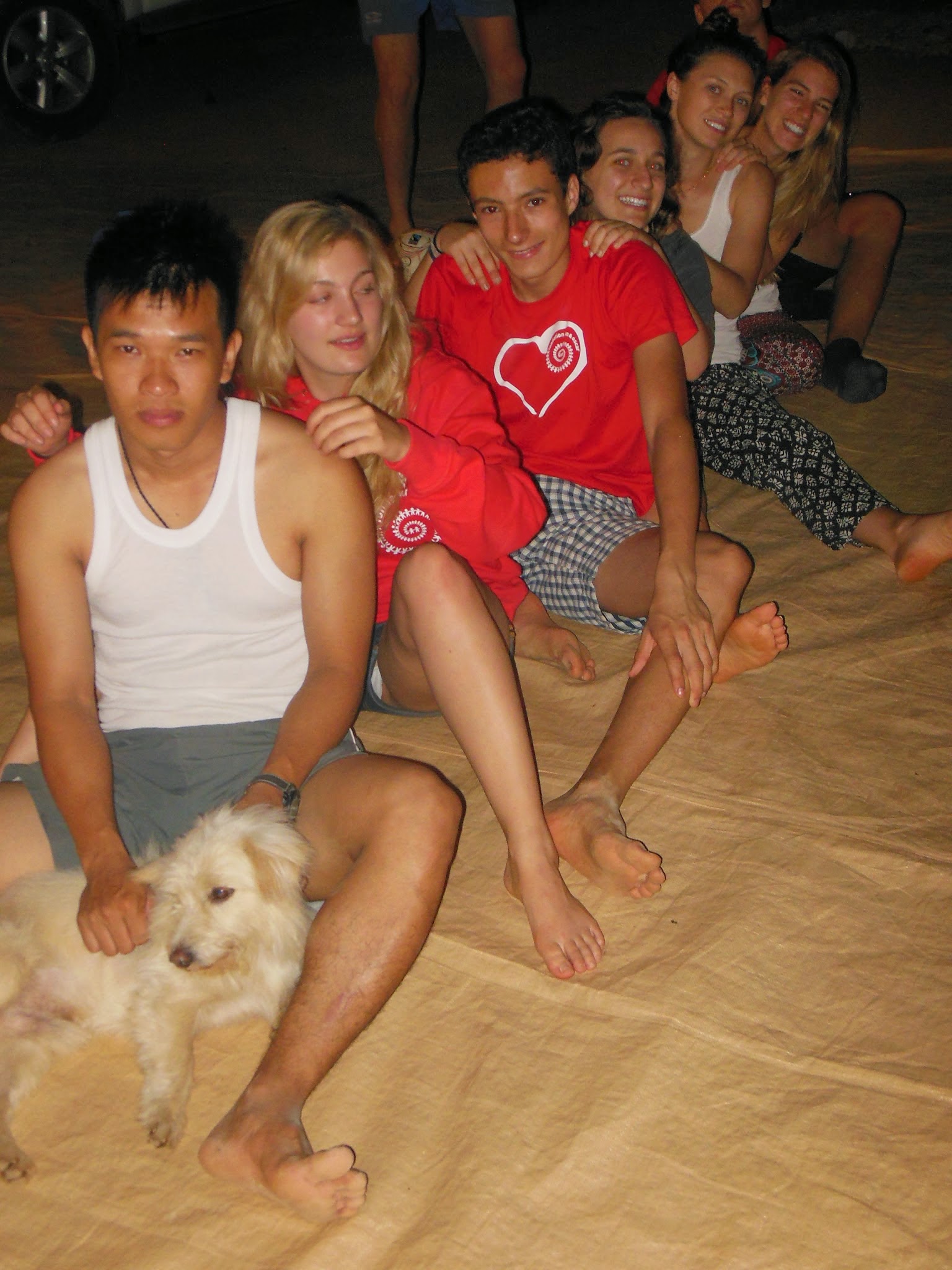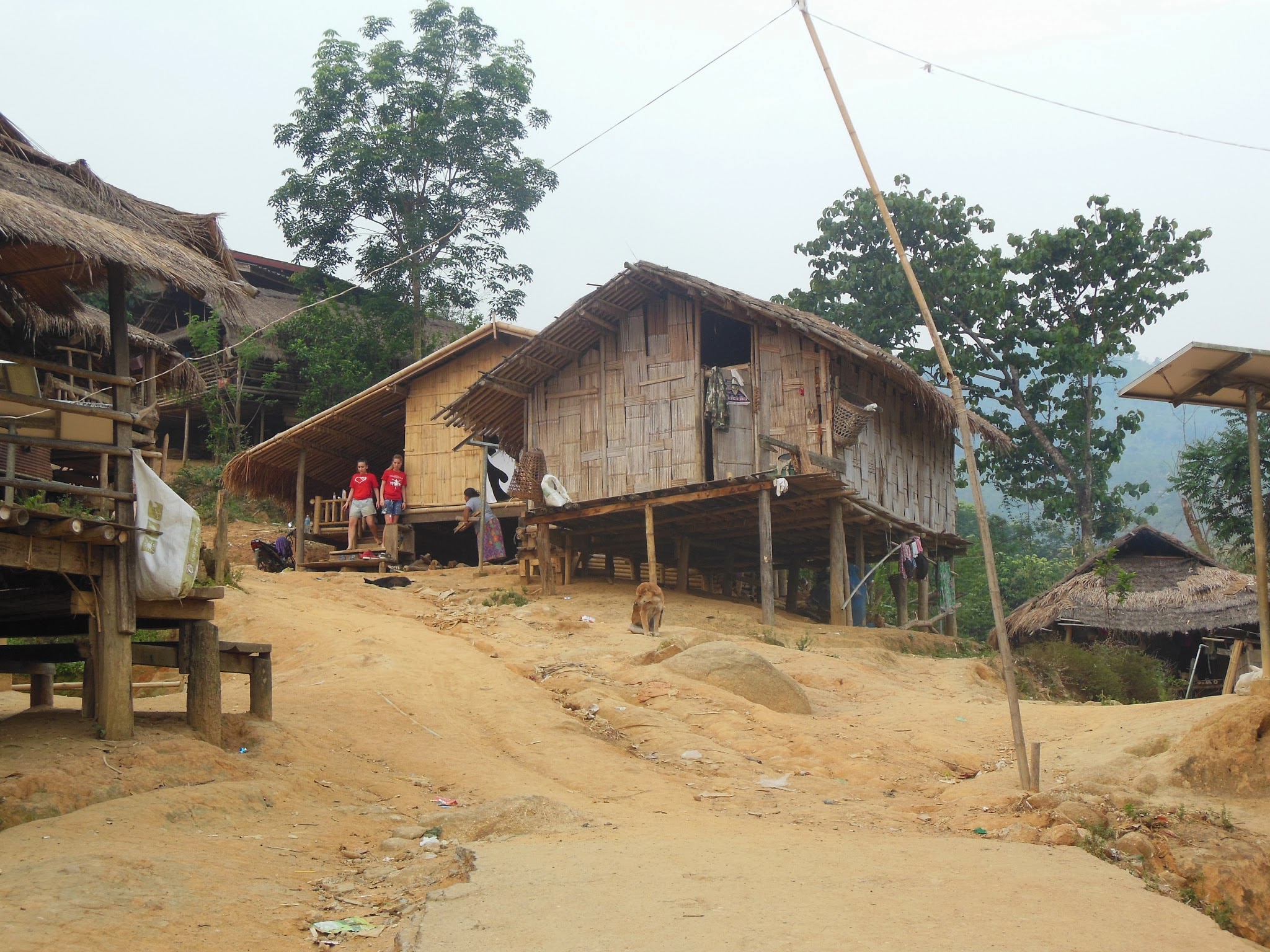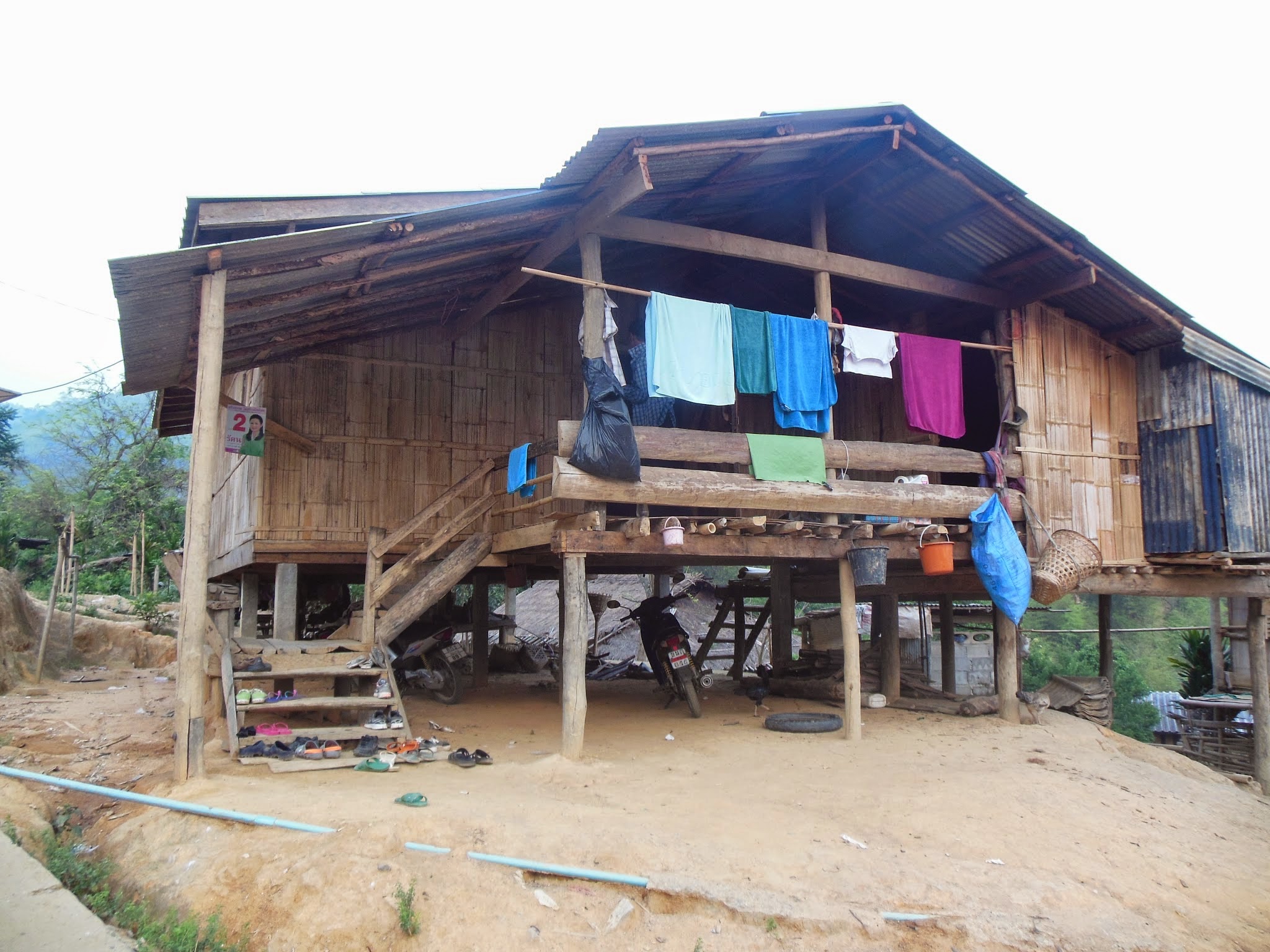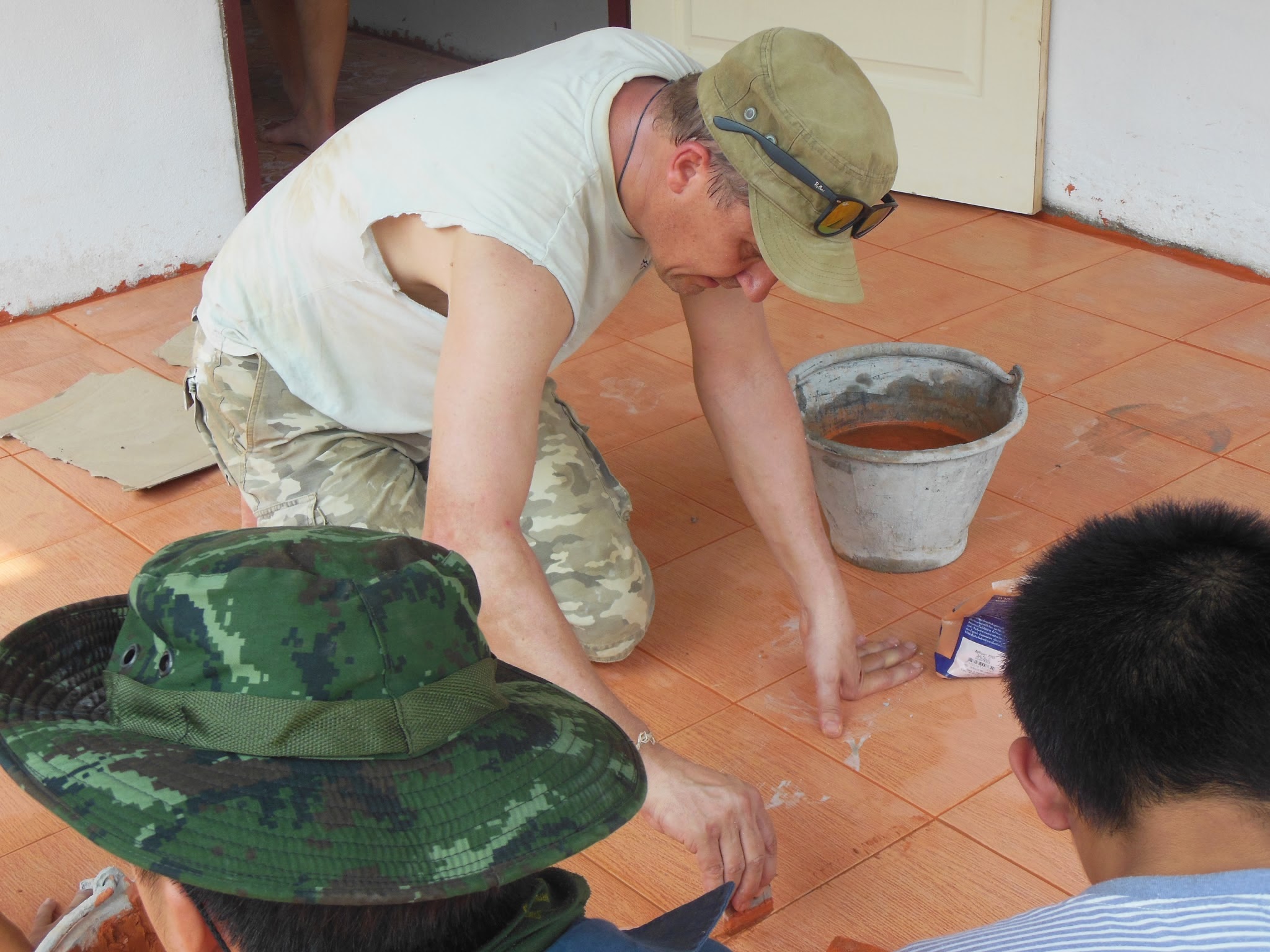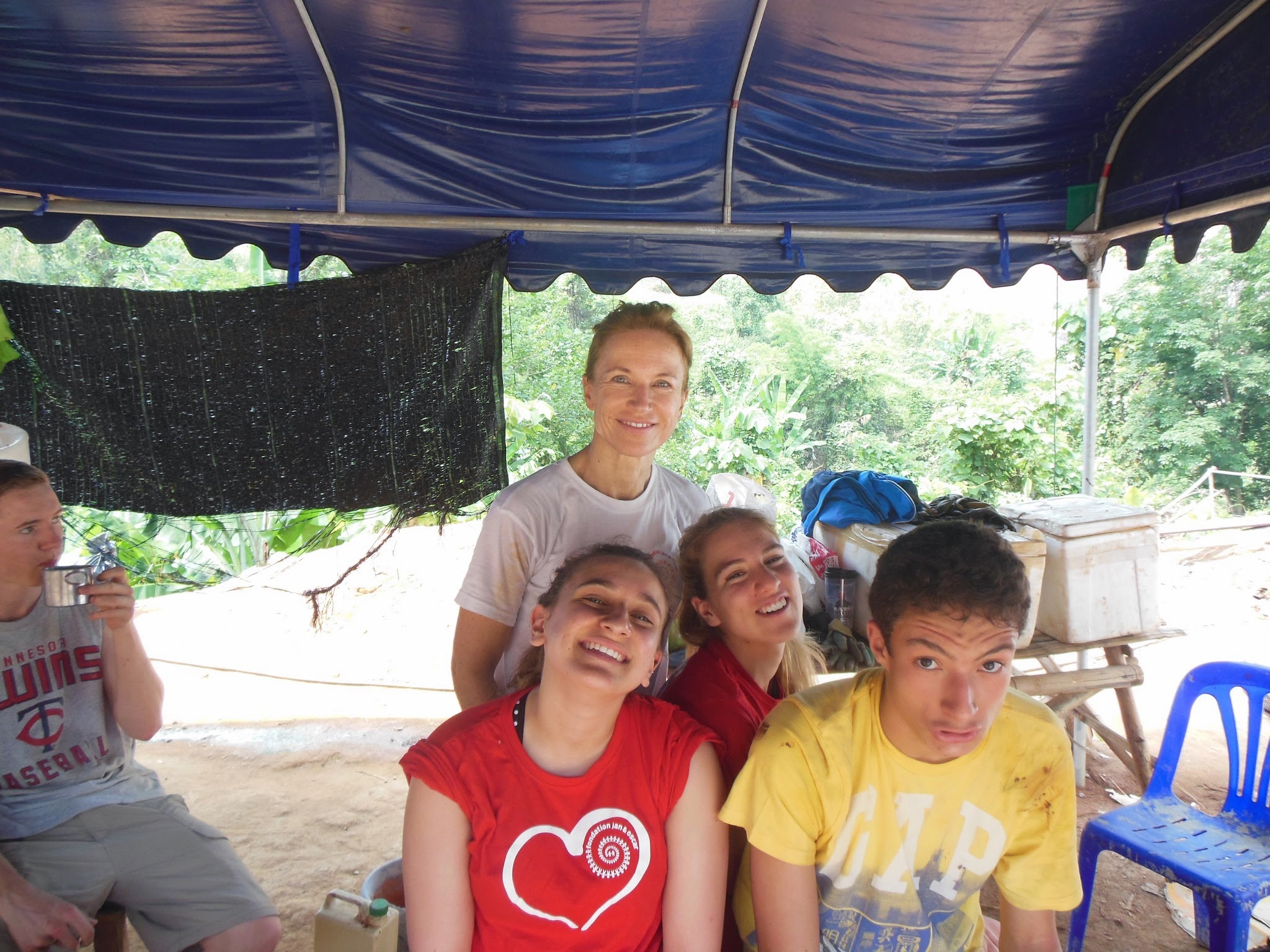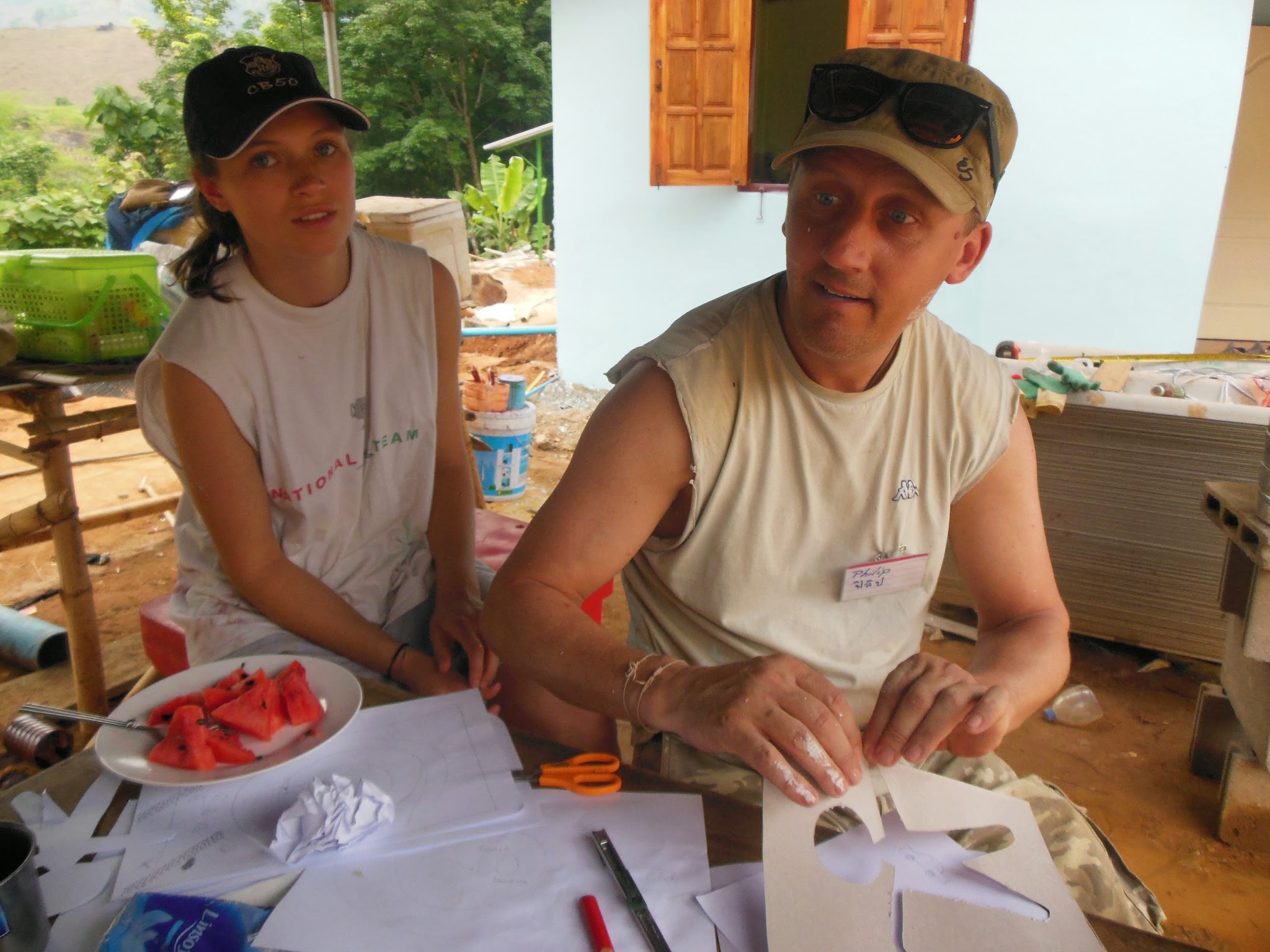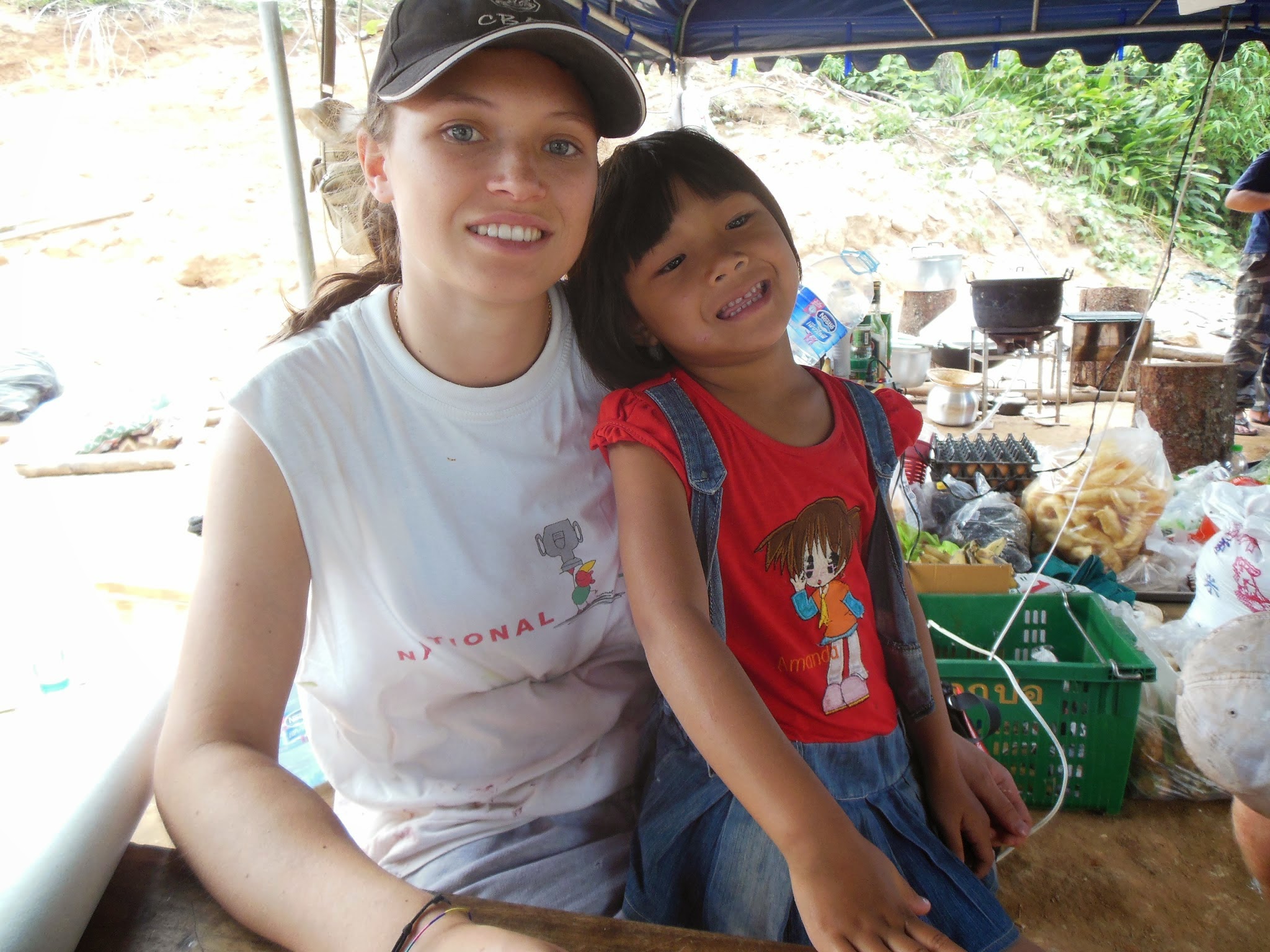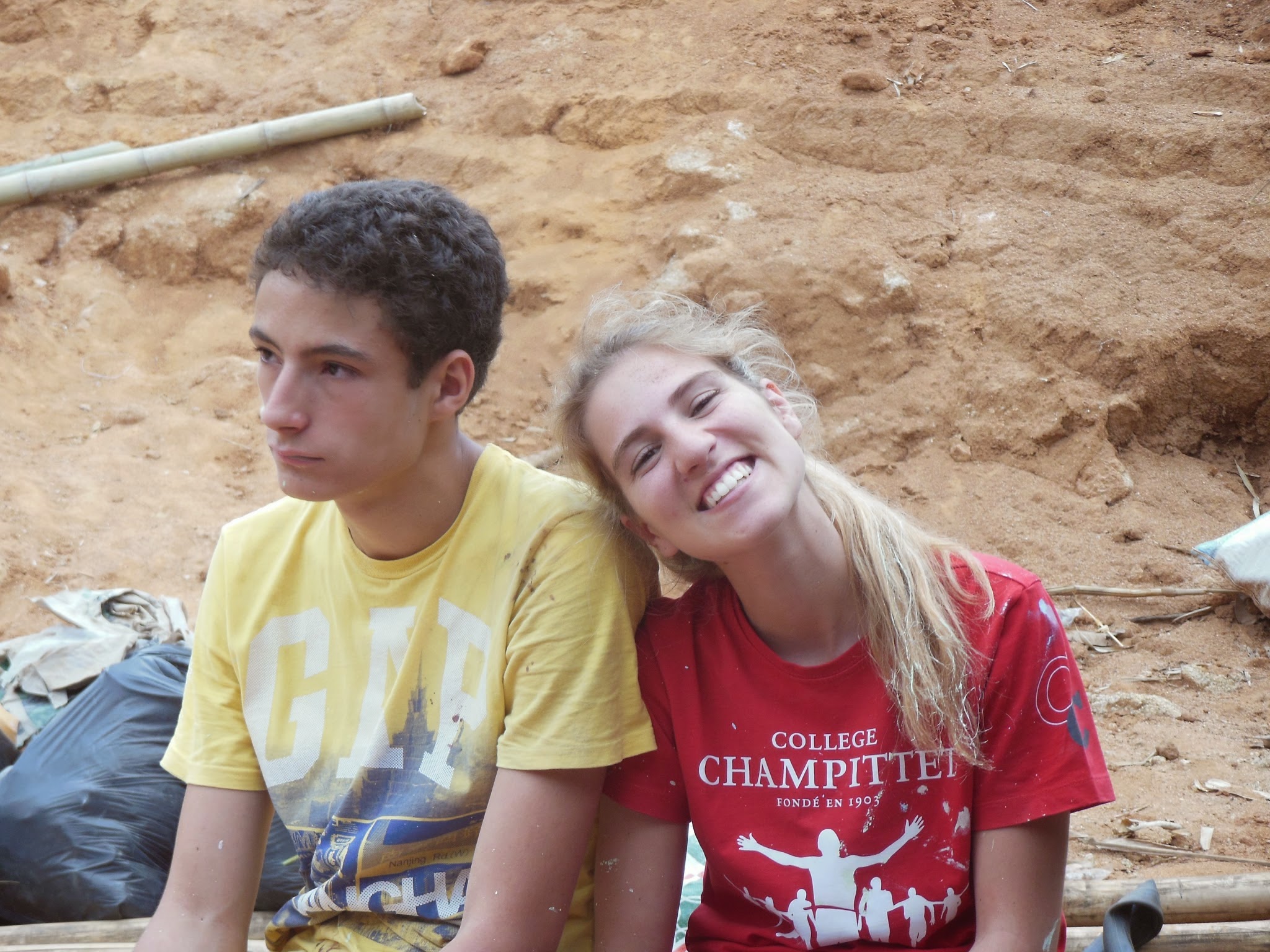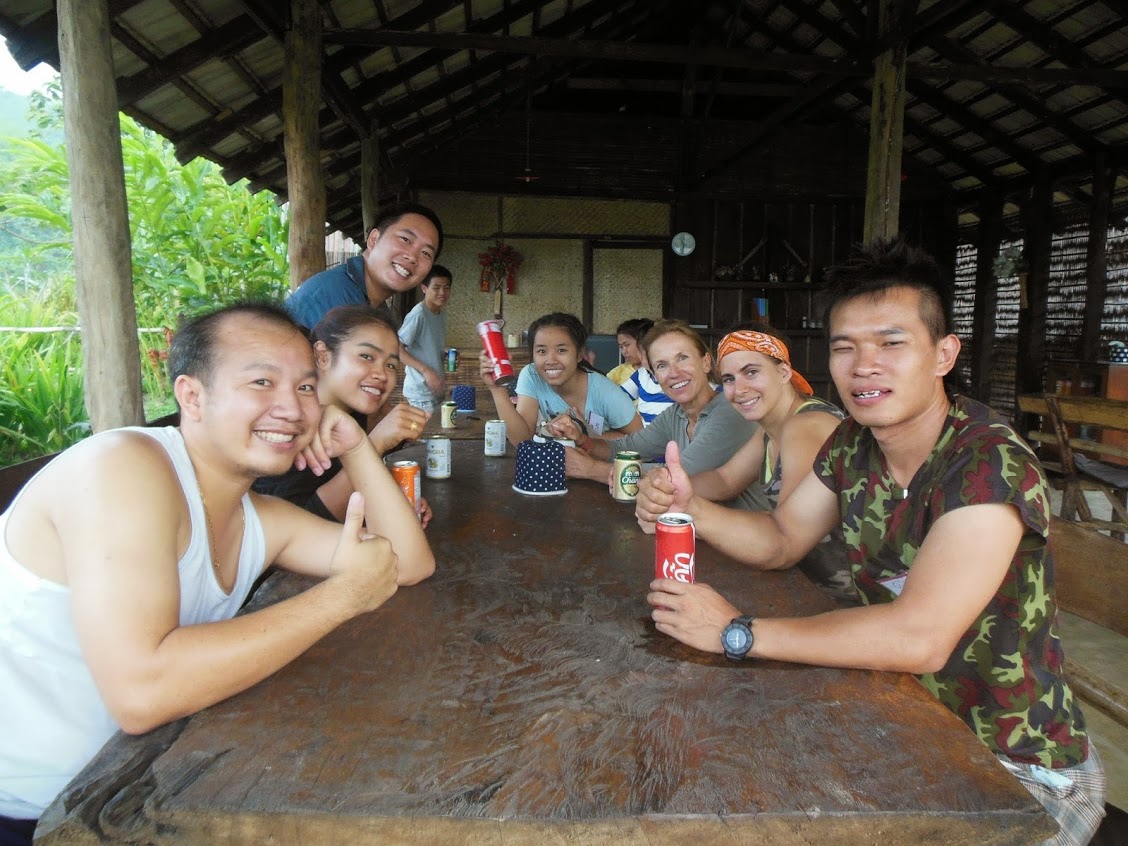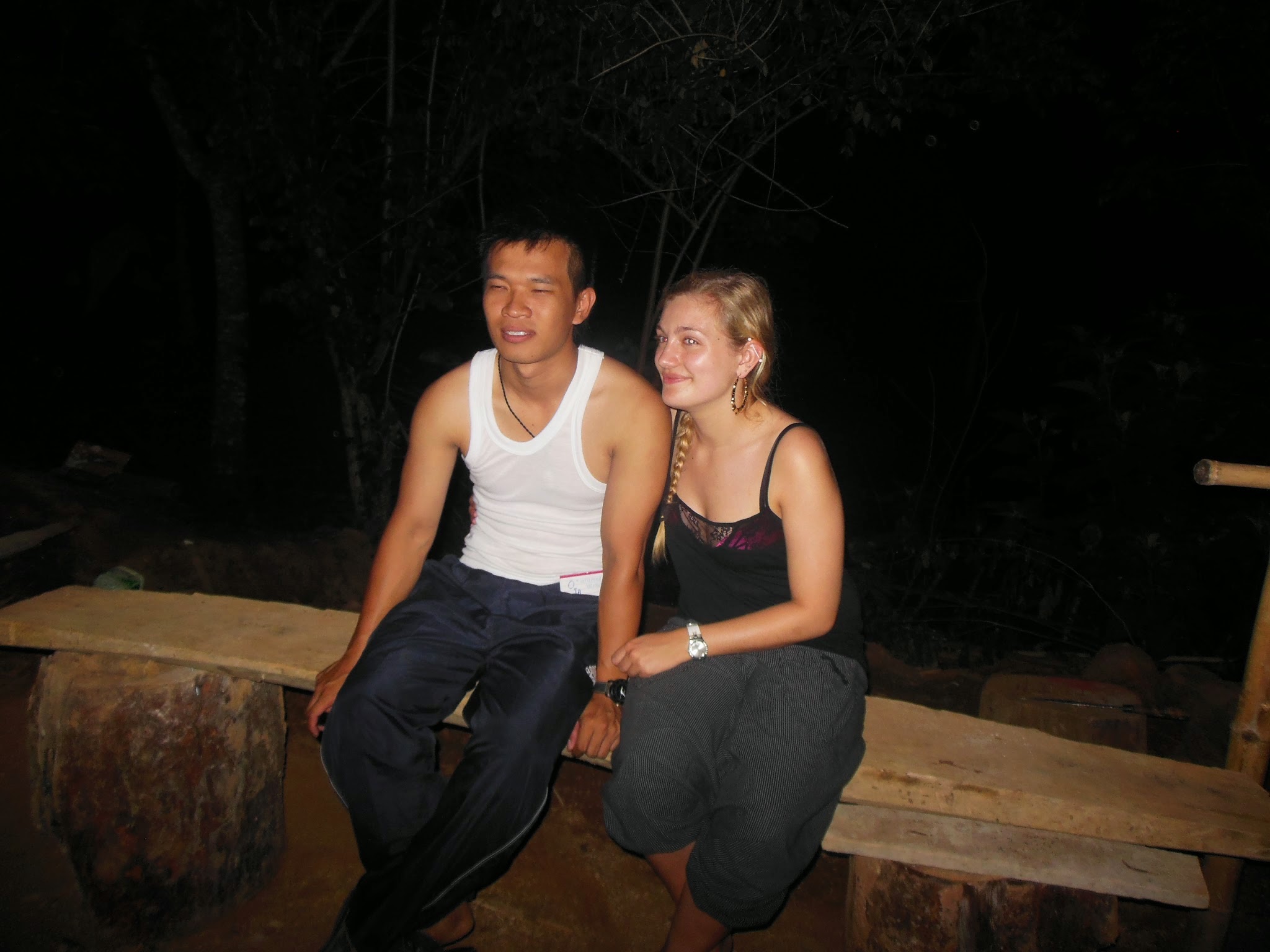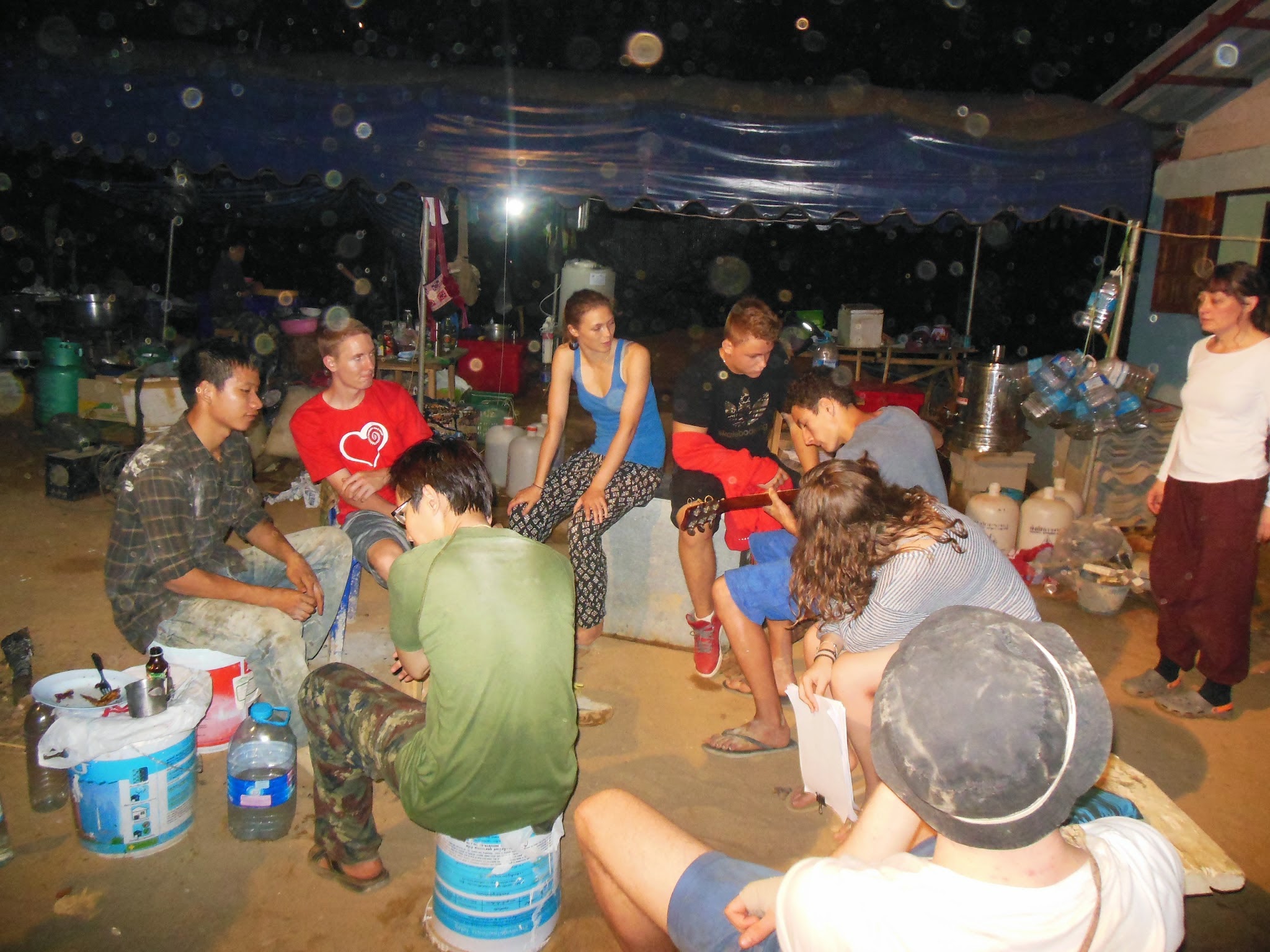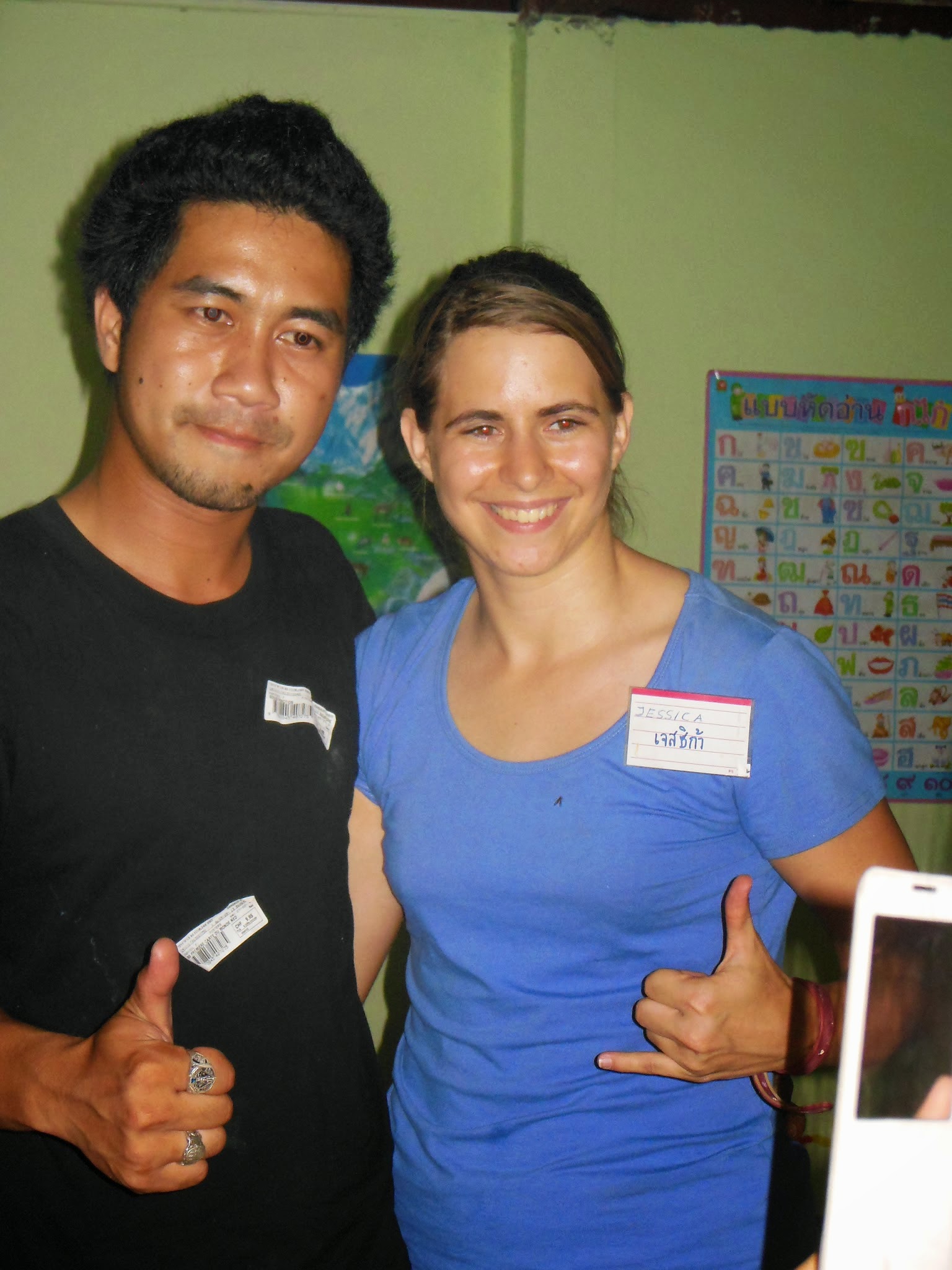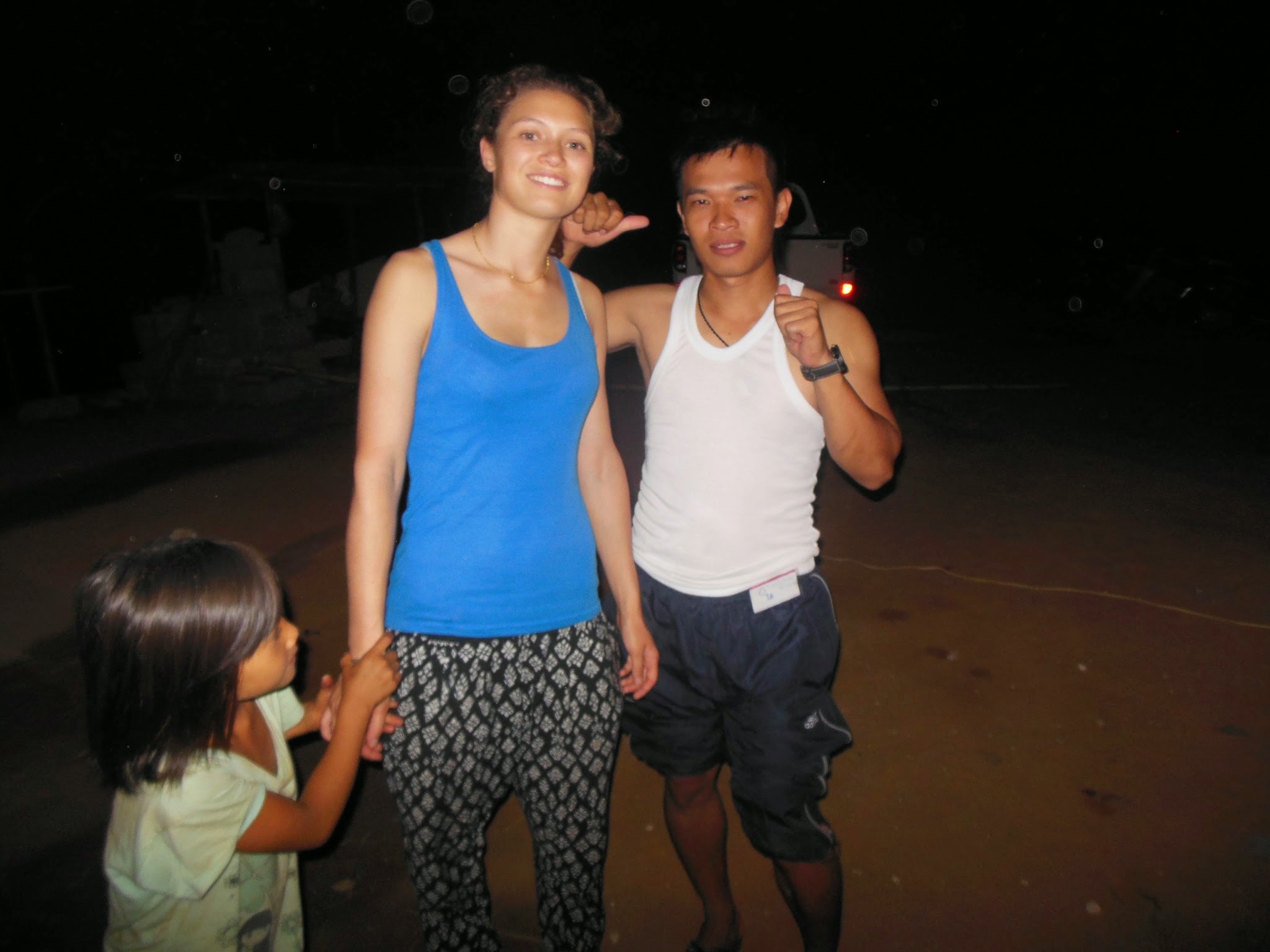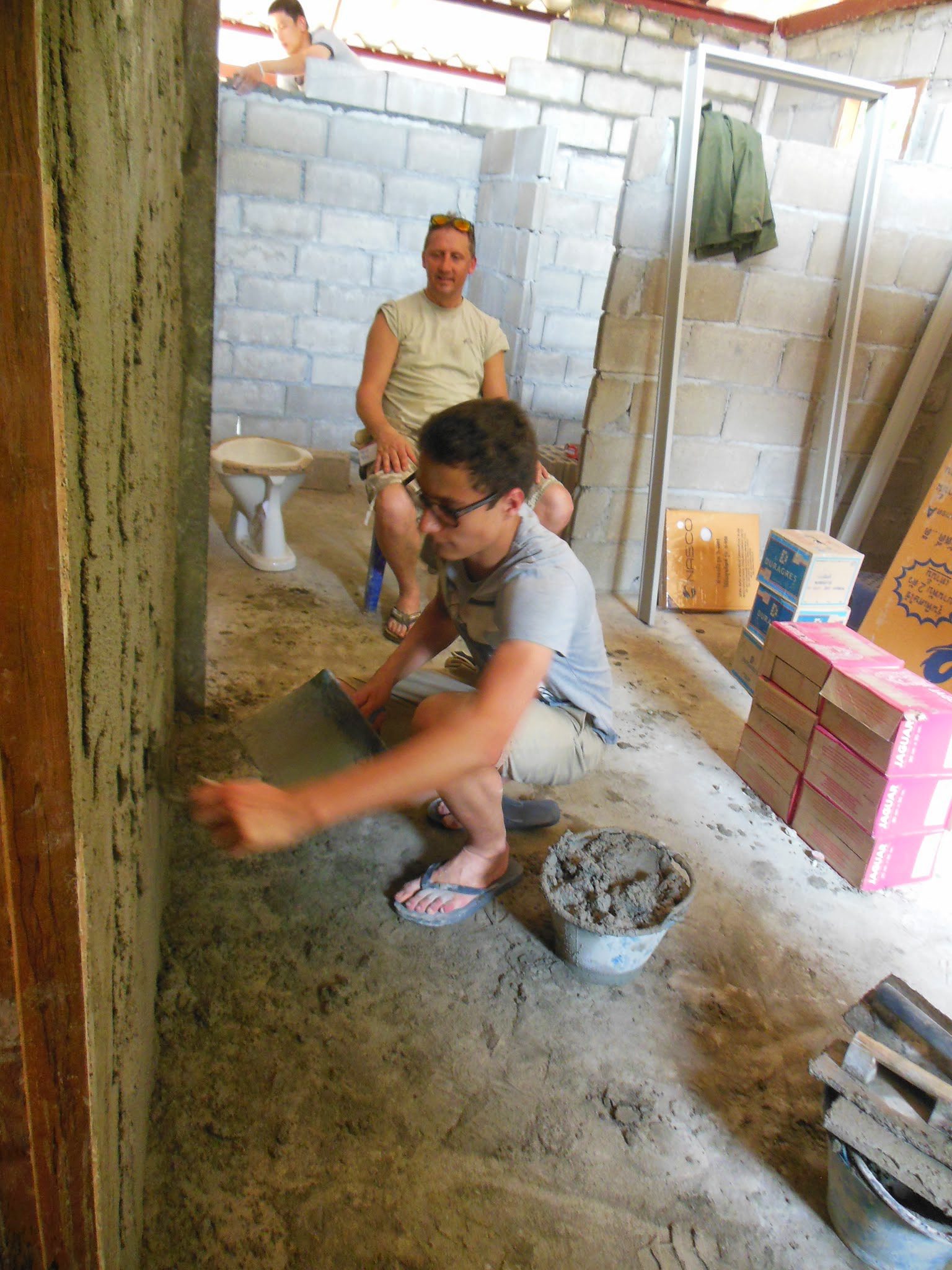April 2014
Building a small school
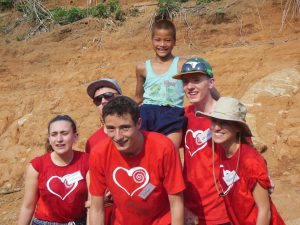
Province de Chiang Rai
Humanitarian trip 14-25 April
Building a classroom with accommodation for the teacher at the school of a hill tribe
village in the province of Chiang Rai.
The village is situated approximately 100 km from Chiang Rai in the mountains.
Its inhabitants come from the hill tribe named Lahu. The road of 20 km which leads to the
village is accessible in 4 wheel drive vehicle, with luggage and food.
The village includes about 40 families. The school of the village welcomes children of the nursery school.
This is the fifth humanitarian trip organized by the Jan & Oscar Foundation. Our group is made up of 13 people, including 3 chaperons and 10 youths.
After many hours spent travelling from Switzerland to Chiang Rai in northern Thailand, we finally arrived at the Legend Hotel where we enjoyed the beautiful swimming pool and spa.
The next day, we packed up our backpacks and set off for the mountains to start off the day. The civil engineering students from the Chiang Rai Technology University, who were already proclaimed Thai members of the Jan & Oscar Foundation, came to escort us on our departure for the mountains. They proudly wore the same t-shirt as us, with the Foundation’s logo and took a traditional group photo with us.
This year, the village isn’t too far away; a good hour by SUV. It is inhabited by a mountain tribe, the Lahu, about 40 families making about 200 inhabitants.
When we arrived, the children observed us unsmilingly for several hours before they turned into joyful, mischievous “tag-alongs”. They took the habit of eating after us, enjoying the food they probably weren’t used to. It should be said that in these remote villages, there isn’t much else besides the animals they raise and the vegetables they grow.
Our first day in the village passed so quickly that we felt like we had been there for ages. Our group is motivated and enthusiastic and the Thai students seem amused and especially honored by our presence. The construction is already making good progress: the main structure has been built, but there are still the finishing touches and a few walls to be built.
While some started to roughcast the walls, others would be mixing the cement. Two girls were in the kitchen today to help out Mos, the student in charge of cooking throughout the construction period. He’s already been cooking every day for three weeks when we got here. You should check out the equipment he has to work with: two burners and two gas tanks, and that’s it! Despite all this, he has made us some delicious meals, which have been different every day, with several dishes per meal! The washing up is done nearby on the ground with a few buckets of water.
Meals are eaten sitting on the ground on a large tarp that we move around depending on the time of day. At noon, we move it under the trees and in the evening, we put it in front of the construction site.
Throughout the first few nights, nobody was really sleepy because of jetlag, but we were still quite happy to stretch out horizontally, even without a bed. We slept on small mattresses in a tent that also kept the mosquitos out.
Our days are counted by the meals and the various tasks to be done. It’s very hot, and in the afternoon we all suffer from the heat.
A few days later, Mongey, the nickname of the Water Resources professor at the University of Chiang Rai came for the day with his cousin. Both of them spoke English very well. He is a lively and extraverted man. In the evening after dinner, he started us games and activities for the students to socialize and get to know each other. The “telephone” game was a great success. The words pronounced in Thai were sometimes quite different, and vice versa, since the teams were made up of two nationalities equally. Another game consisted of attaching your leg with a balloon to someone else’s leg, trying walk together to pop the balloon of the other person while protecting your own.
Other evenings, after the meal, we would initiate the Thai students to the games we brought along – UNO was a great success as well as Rummikub and Connect-4. We could hear laughter echoing throughout the night. When we remember our first trip in 2008, the young people were reserved and shy. Six years later, the ties have been so strengthened even though there are new students on both sides every year. Shyness at the beginning of completely gave way to great affinity between the youths and even with the children in the village – it was wonderful!
One evening, we decided to work later because it has been too hot during the day. When we went down to the village to our huts, we heard shouting so loud we thought someone was injured. The women of the village ran to help. Actually, they were girls who had become hysterical with their flashlights, which had attracted spiders. The villagers burst out laughing – phew! More scared that hurt!
There is still quite a lot of work to do to finish up the construction. A few new students from Chiang Rai came for backup. That day, Jiew and O, two loyal students who had helped us to coordinate the trips for several years, asked us to make some spaghetti bolognaise. Since there were two Italians with us, Lena and Tania, they were the ones to prepare the meal which was a great success. The hardest part was to find the translation of the ingredients when they went shopping. Our young Europeans were thrilled to take a “pepper break”!
The next morning, we went for a walk with a small group to explore the surrounding area. There is even a pretty river where the boys would come get pebbles later on.
The rice paddies were very green and one woman was acting as a scarecrow by beating a plastic drum barrel from time to time. A little further on, there were small straw huts and we found out that they were a sort of guest house for people who wanted an authentic experience with the tribe. It was a very small tourist facility started out by a family from the village who also offered trekking into the mountains.
On the sixth day, the construction of the school made a lot of progress and was almost finished. The days are very hot and mixing the cement required a lot of energy. We sweated profusely and had headaches due to dehydration. Suddenly, the wind picked up, cooling things down, only to pour down rain just afterward. That evening, we ate for the first time in the classroom whose floor we had finished. The atmosphere was different than the other nights because we were indoors. It made us think somewhat of a winter’s evening in Europe.
Our last day in the village! We had to repack our backpacks and put the tents, covers and mattresses away. The girls finished up quickly, but for the boys… well, just ask Philip!
A few officials representing the Department of Education came to the opening ceremony. Teachers from other schools in the region we had built a few years ago were also present. The morning was devoted to the gifts brought from Switzerland for the children, with whom we played with until the meal prepared by the villagers.
After the festivities, we went back down the mountain and we stopped in the Elephant Village for a ride. The return trip was made by boat to our hotel while the luggage was carried by car.
How wonderful it was to have hot water, the swimming pool, and of course, a real bed! We got back into our usual comforts with no problem.
That very evening, we saw all the Thai students once more for a last dinner together in the city. When the moment came to leave, big hugs and laughter mixed with a few tears. We promised we’d see each other again the following year for another construction project.
The construction of a small building including a classroom and the accommodation for the teacher was launched to the initiative of the students in engineering of Rajamangala University (Chiang Rai). We have already participated four times in the construction of three schools of this type these last three years.
Pictures
Video

